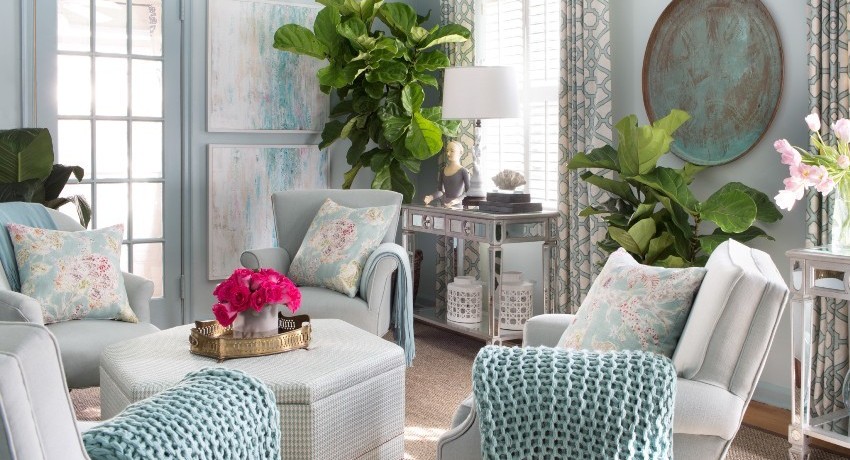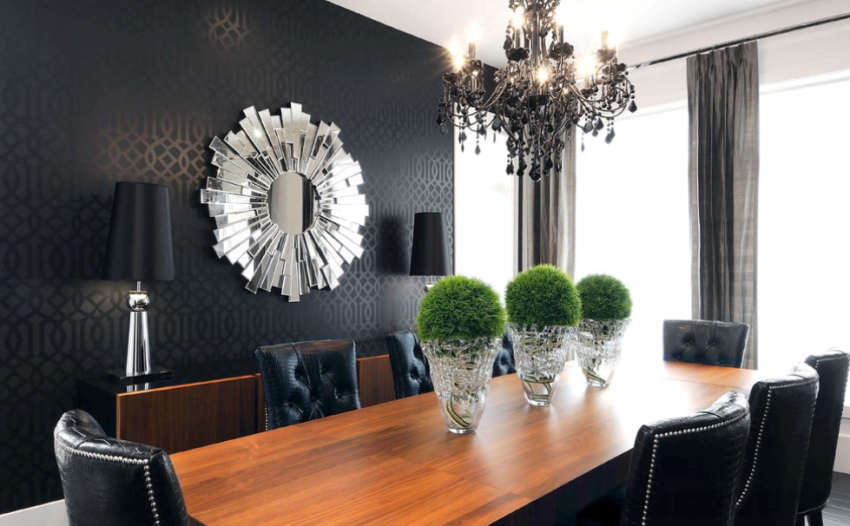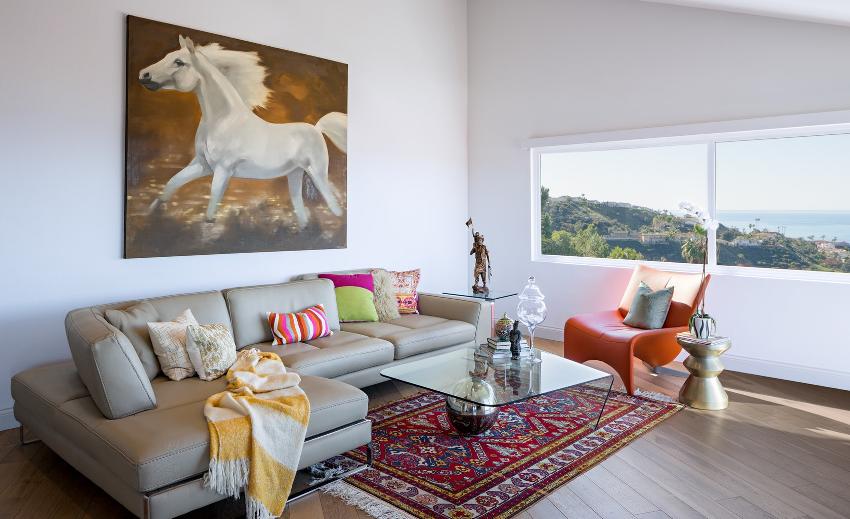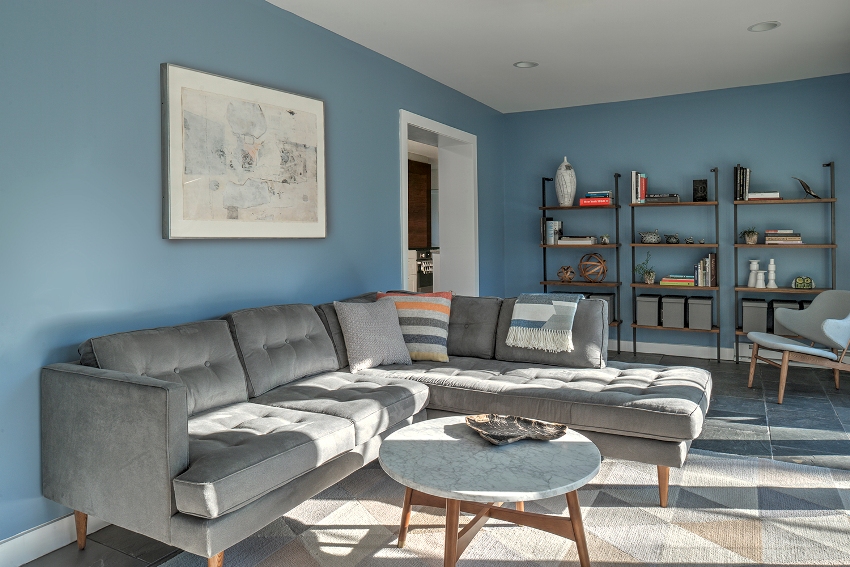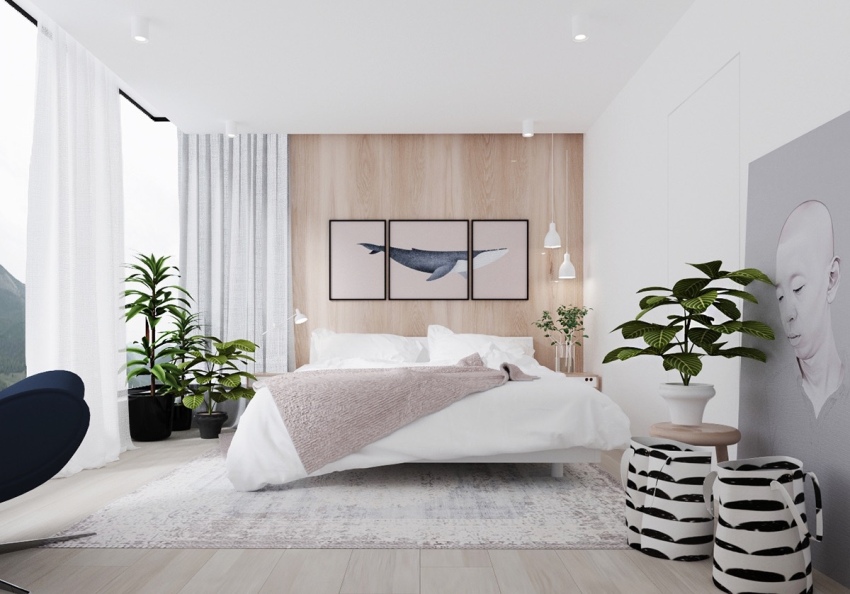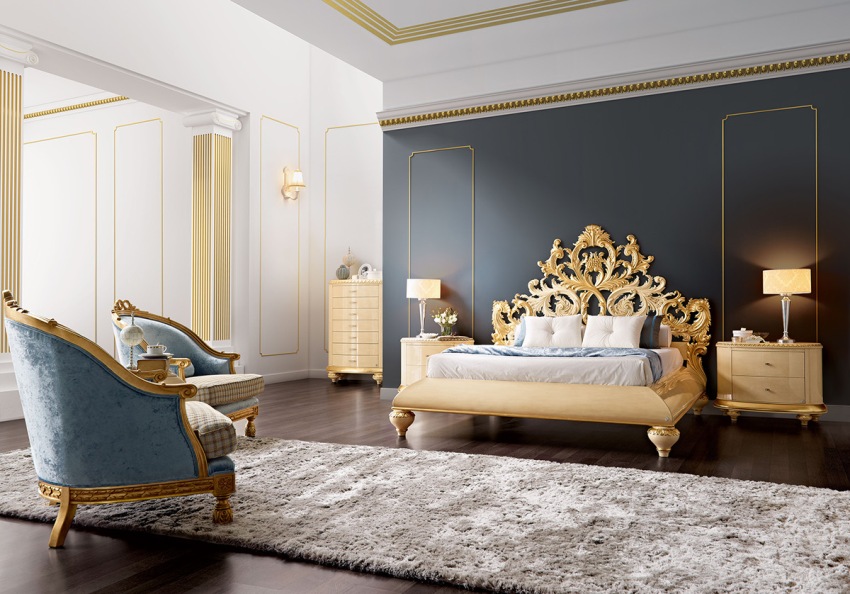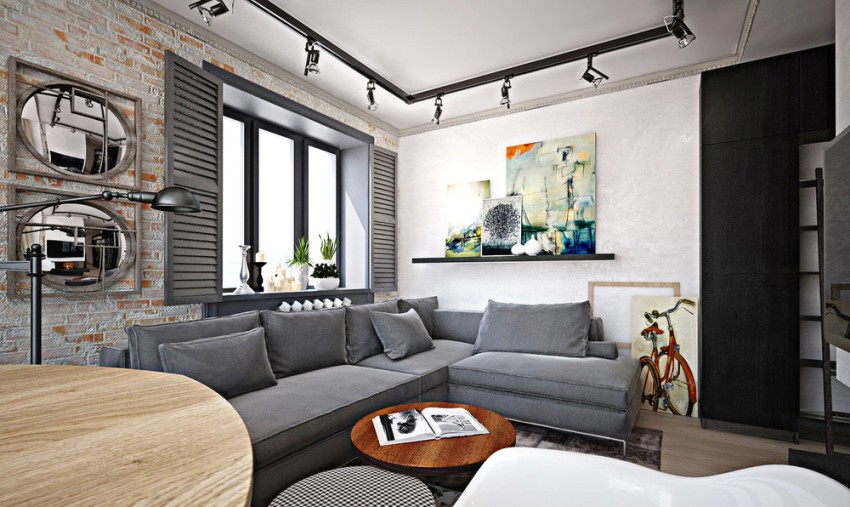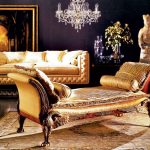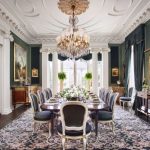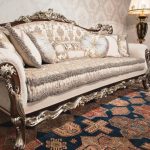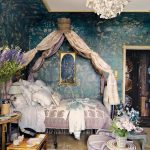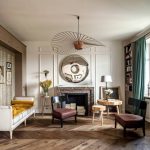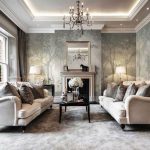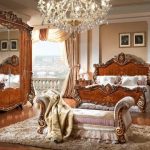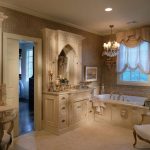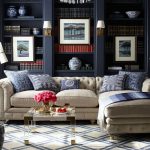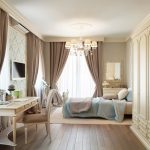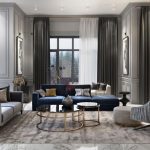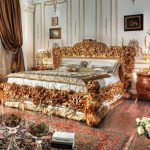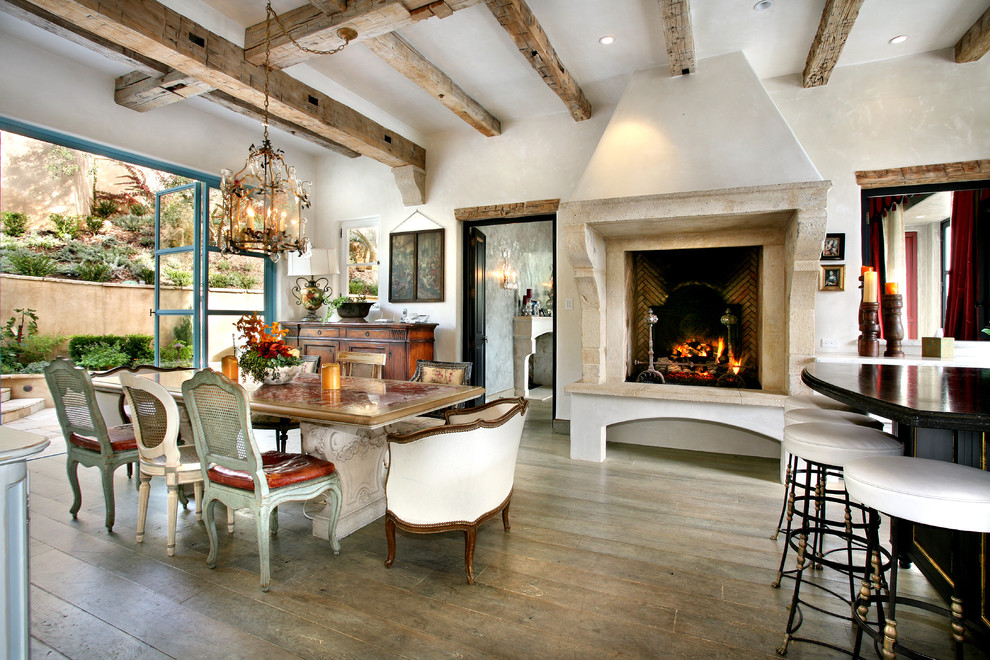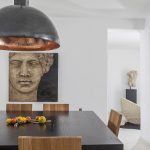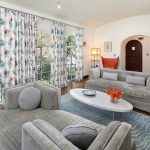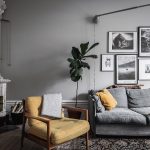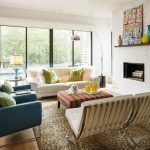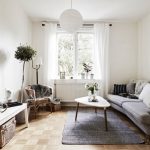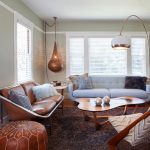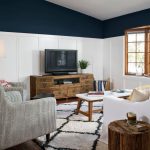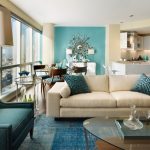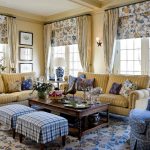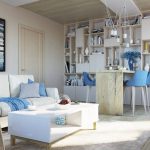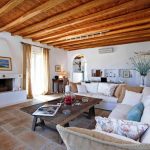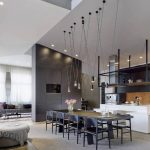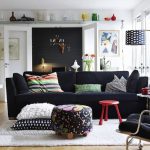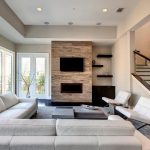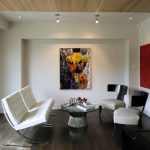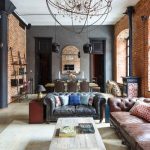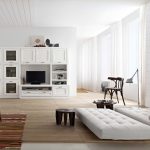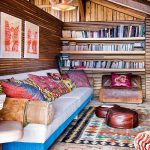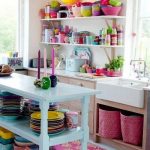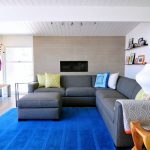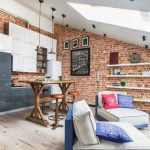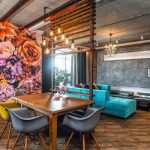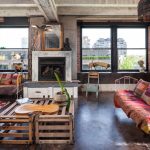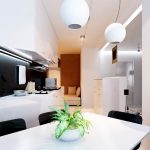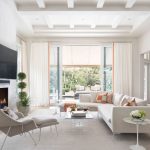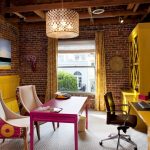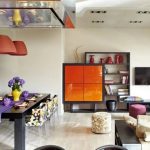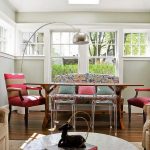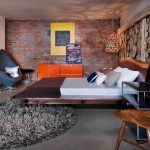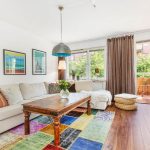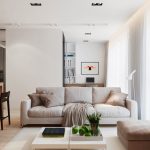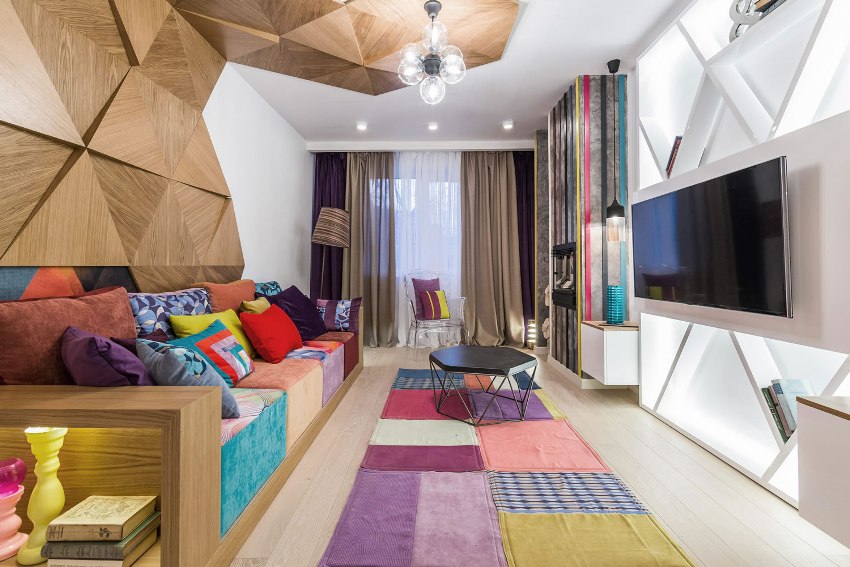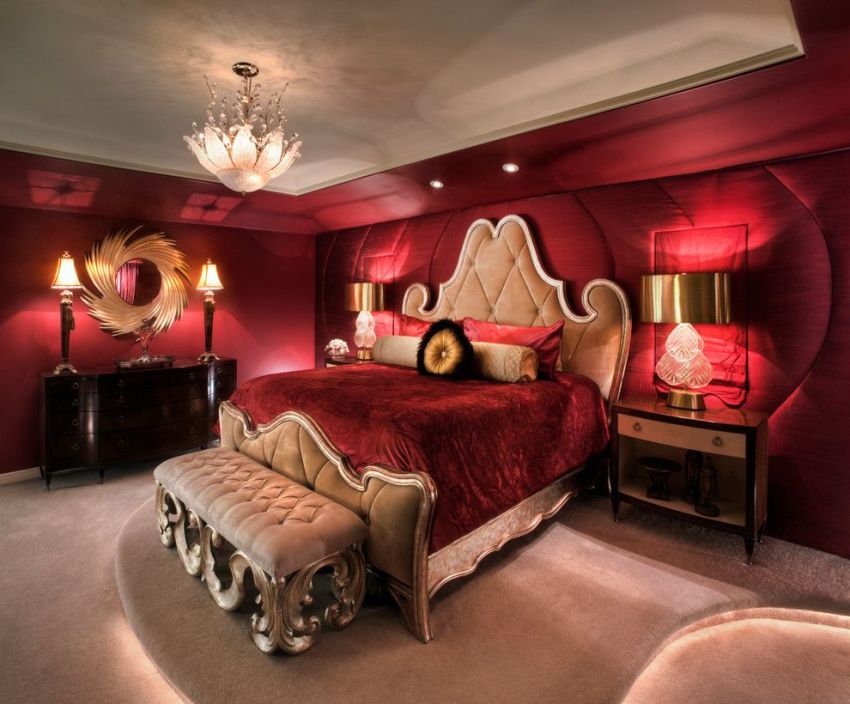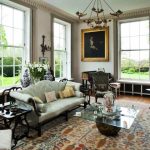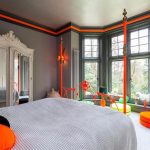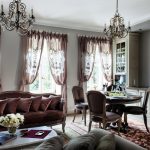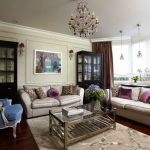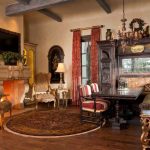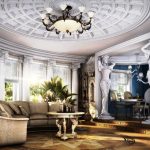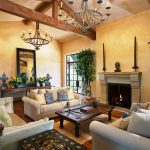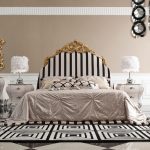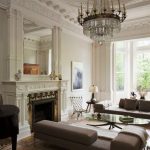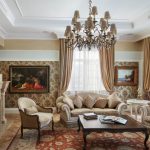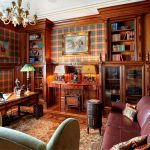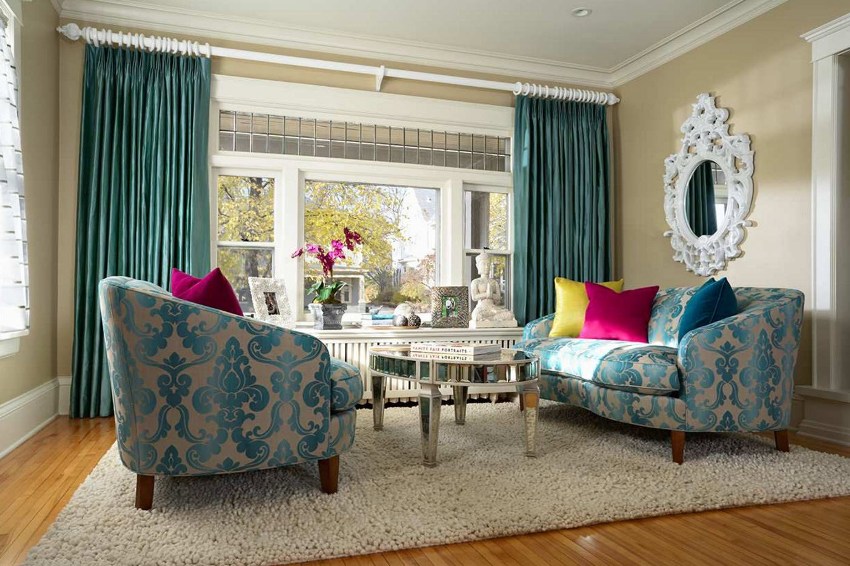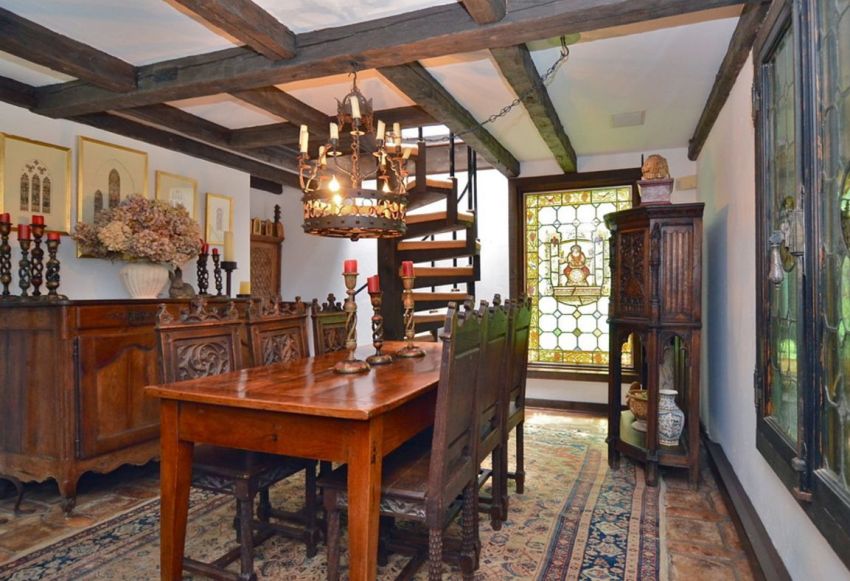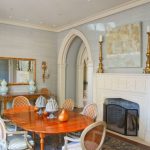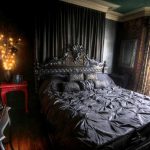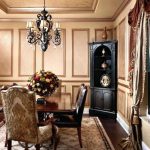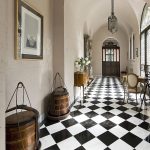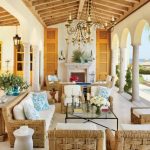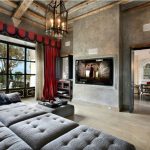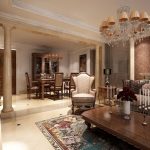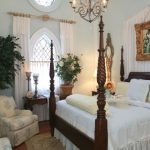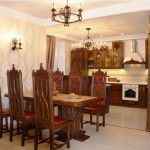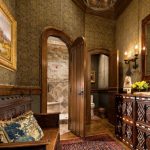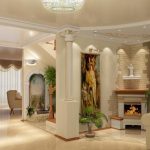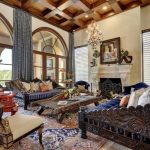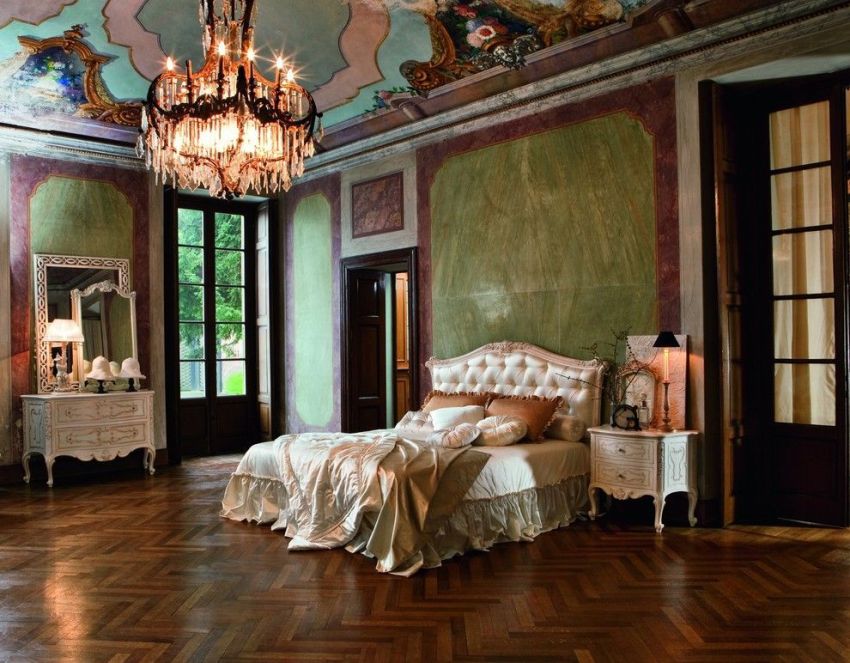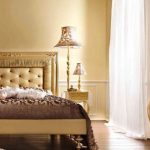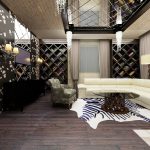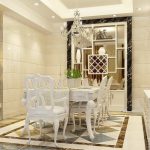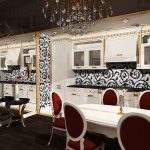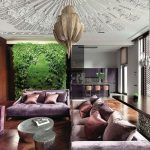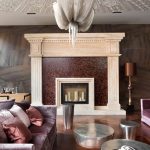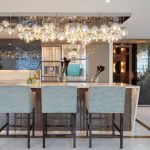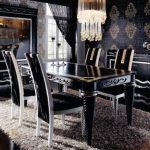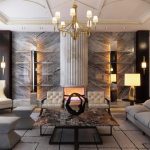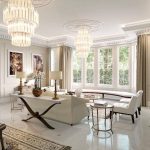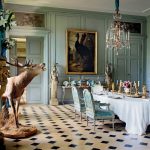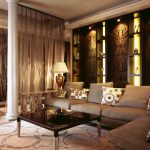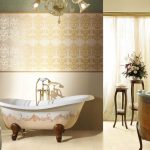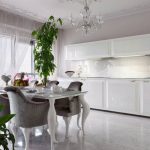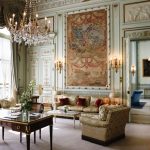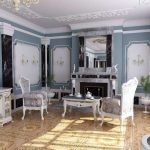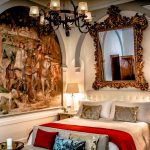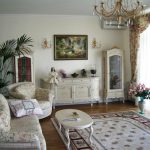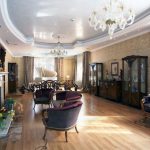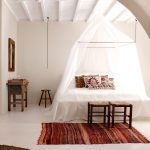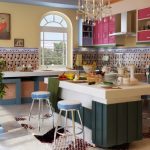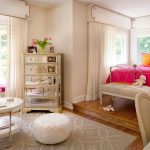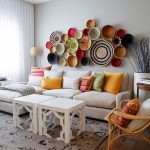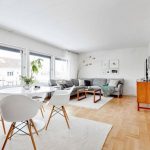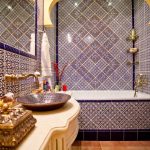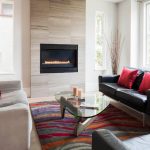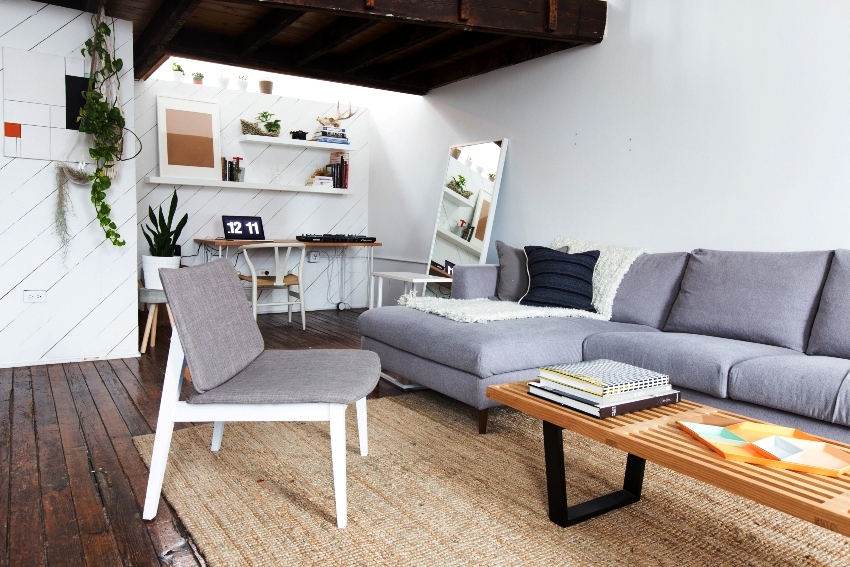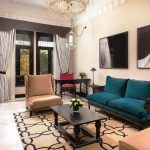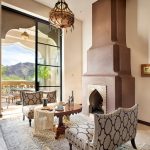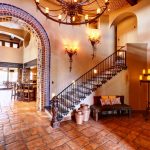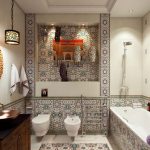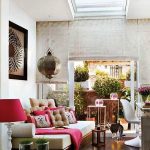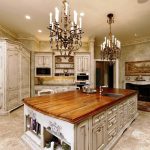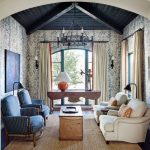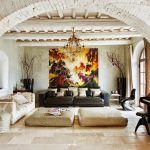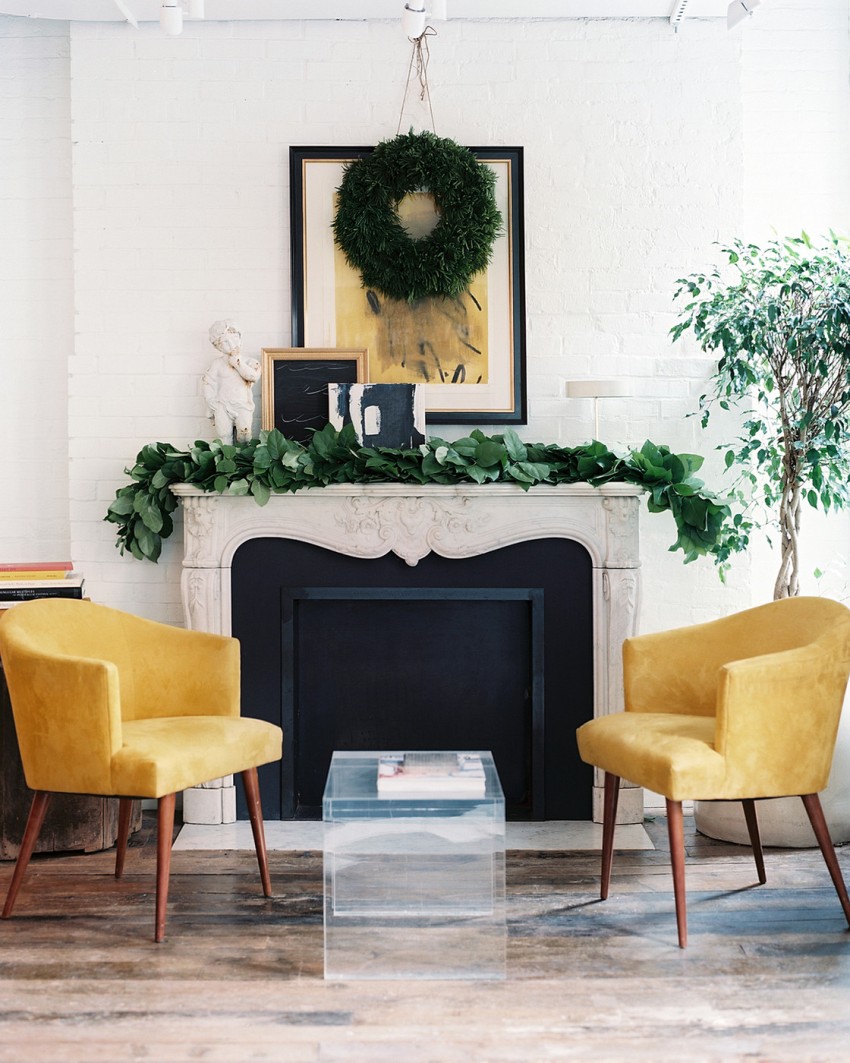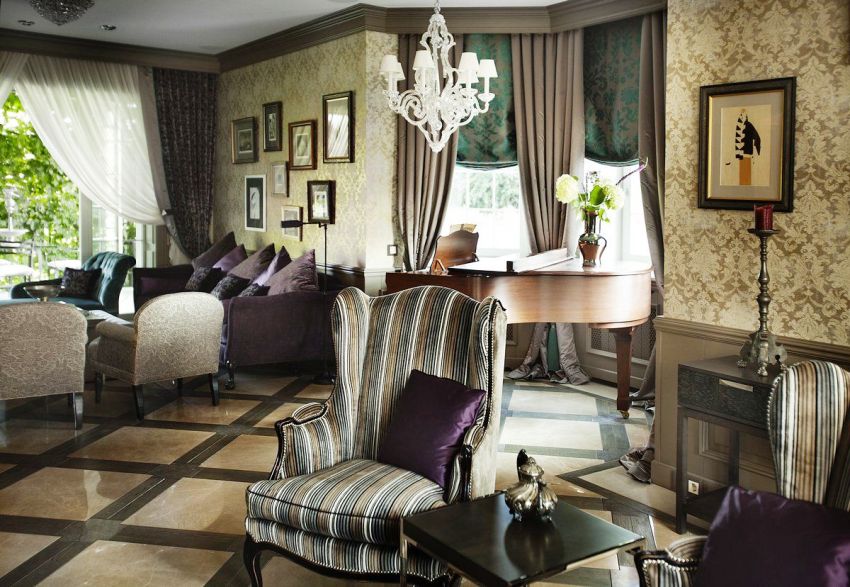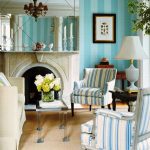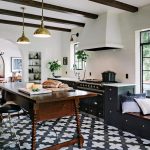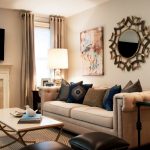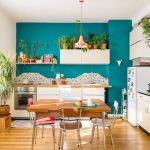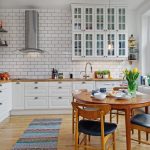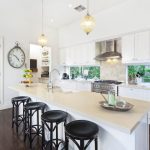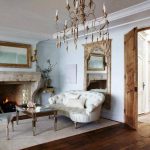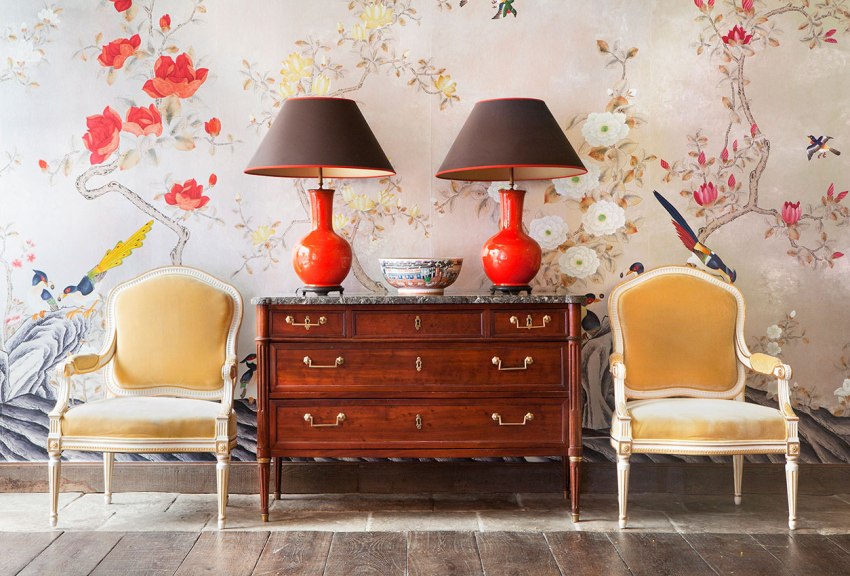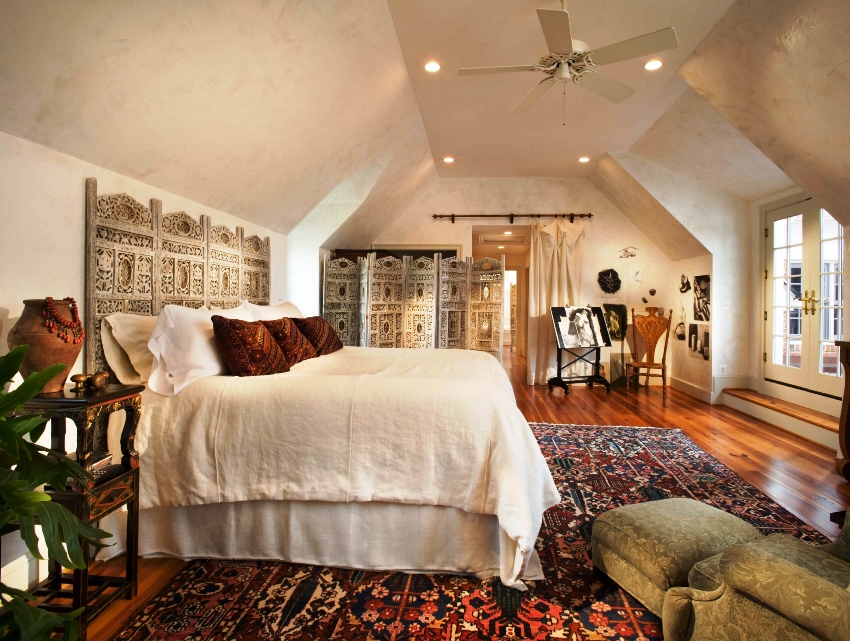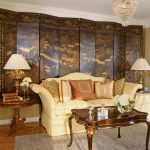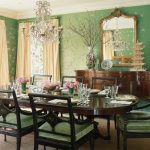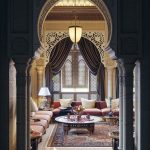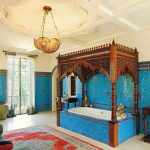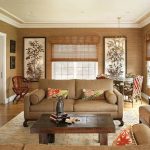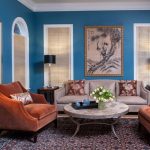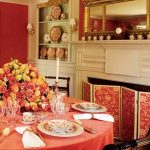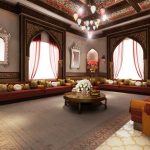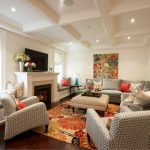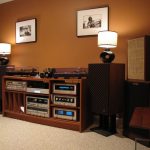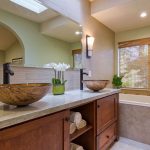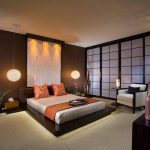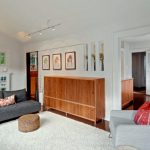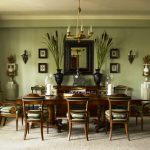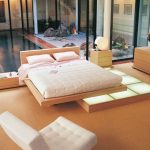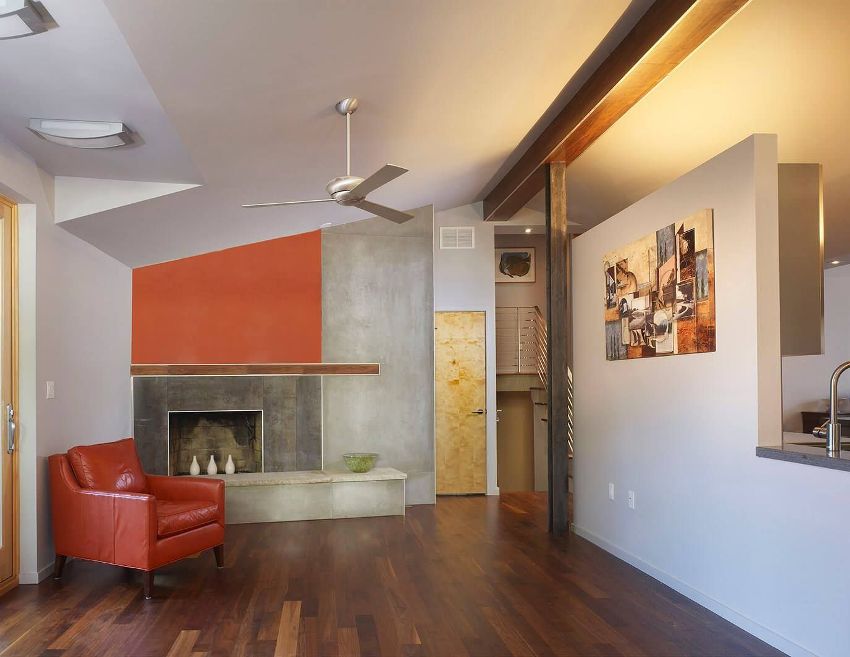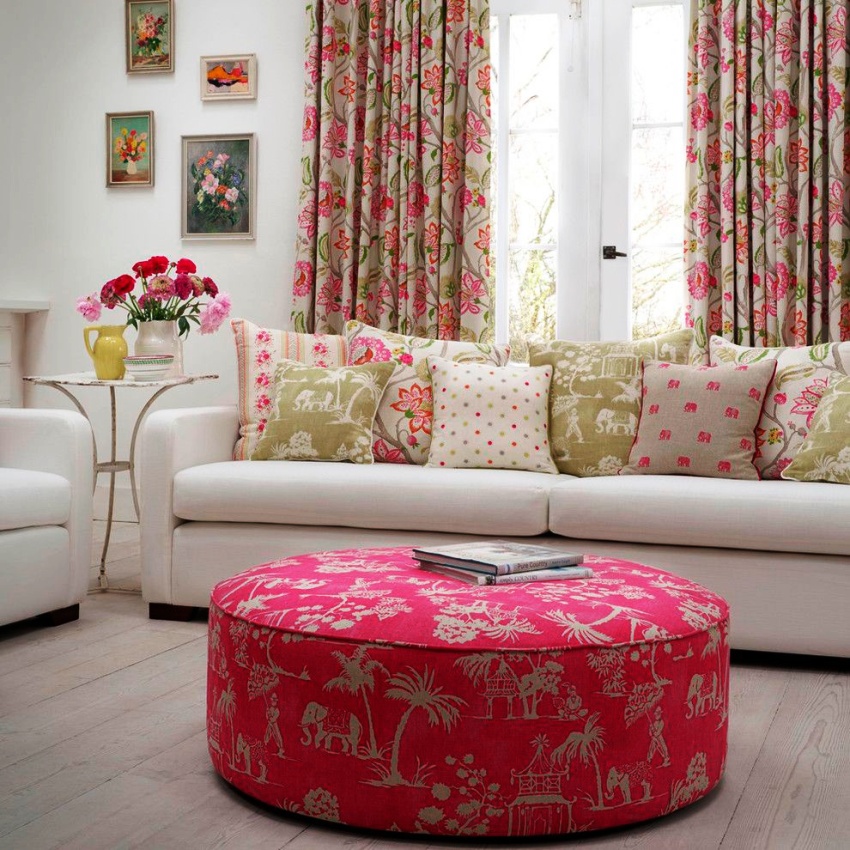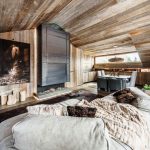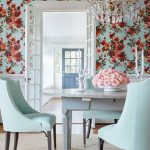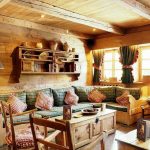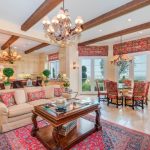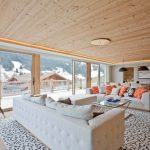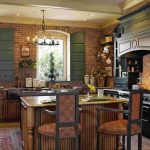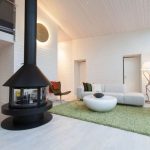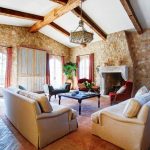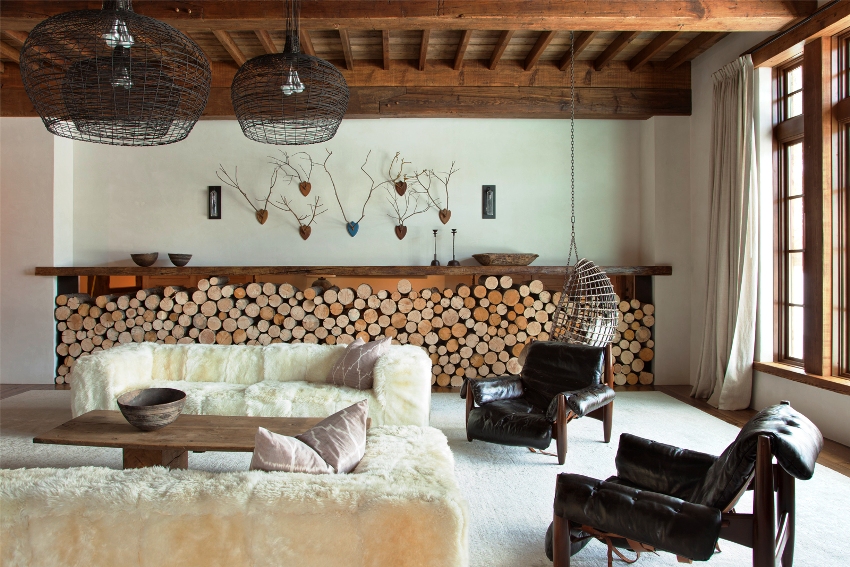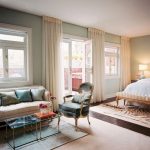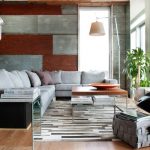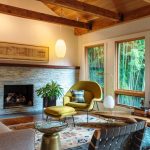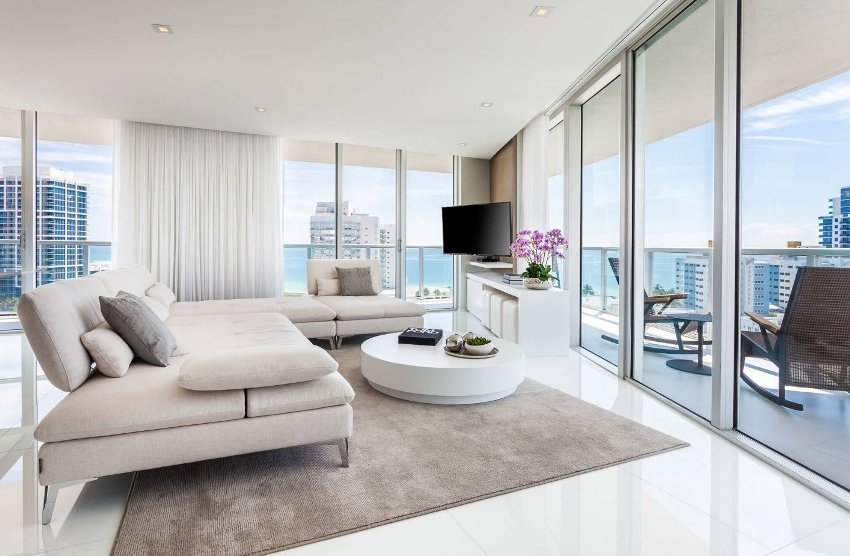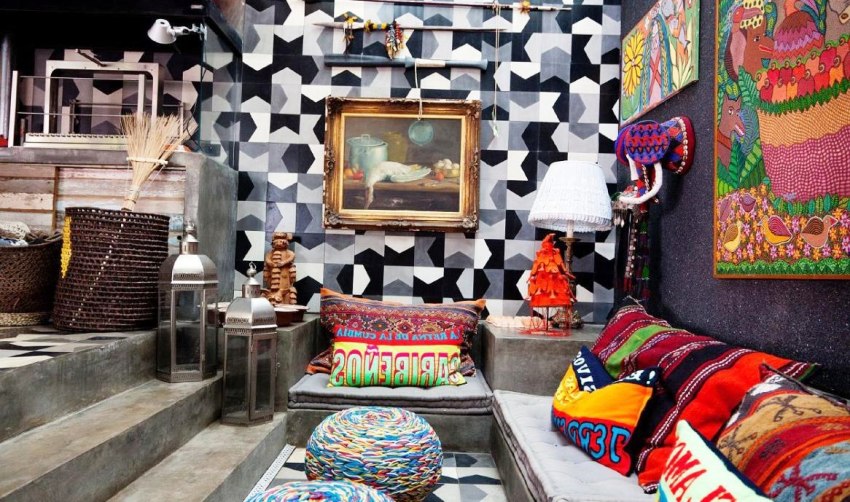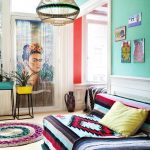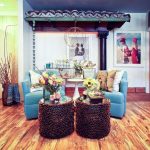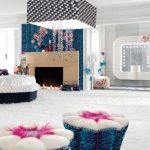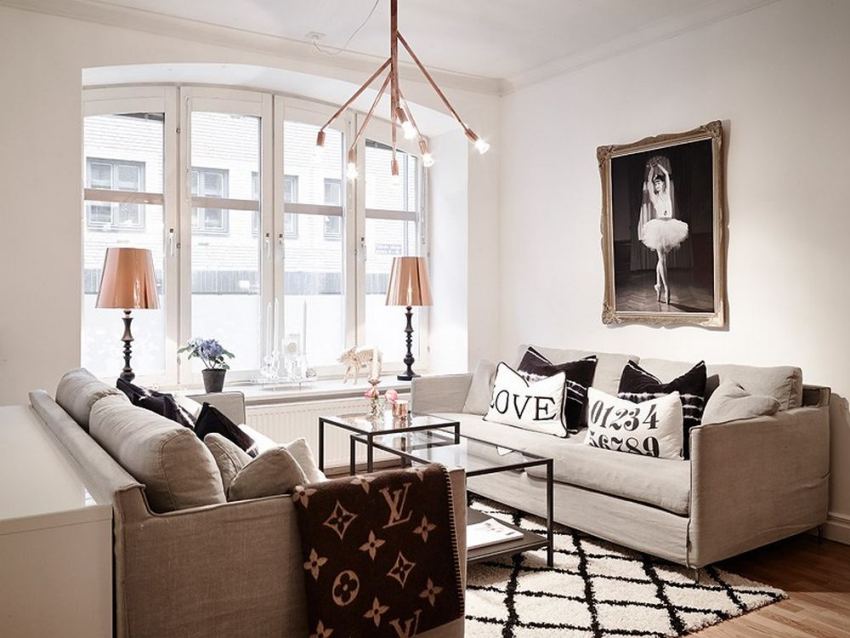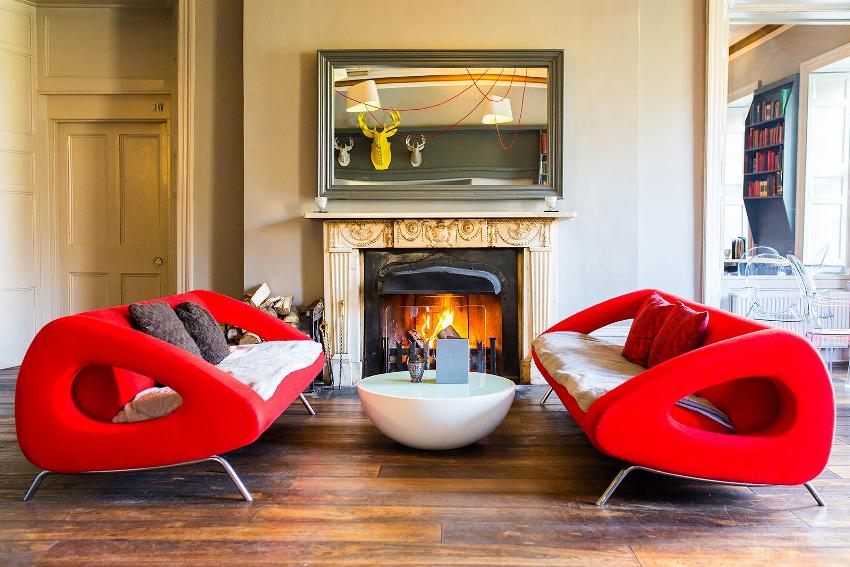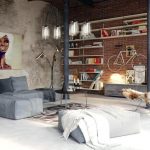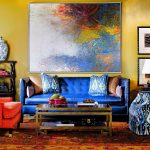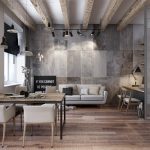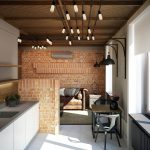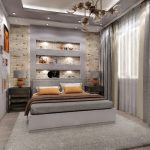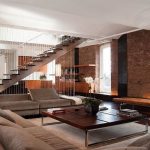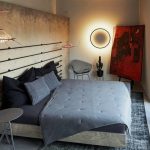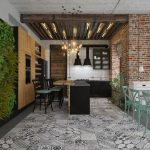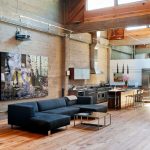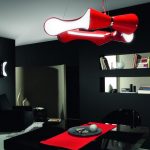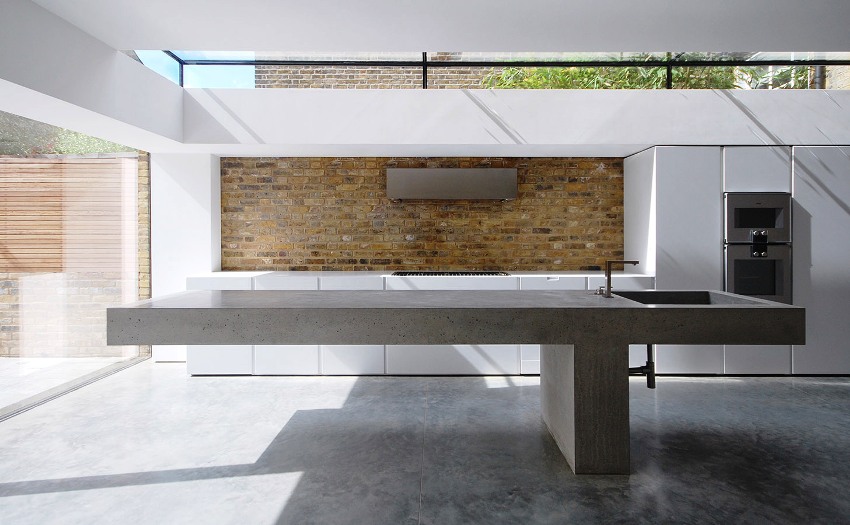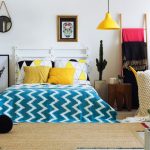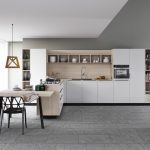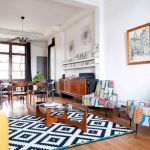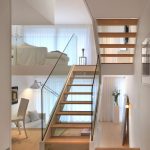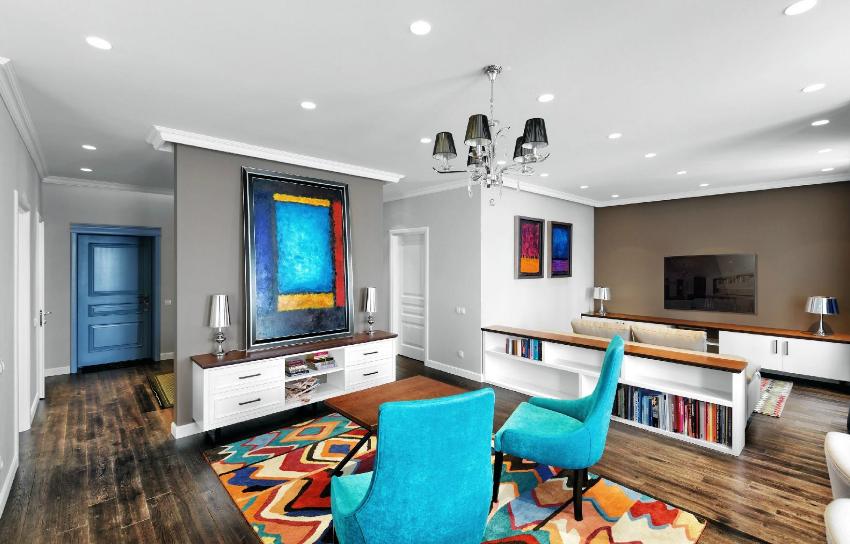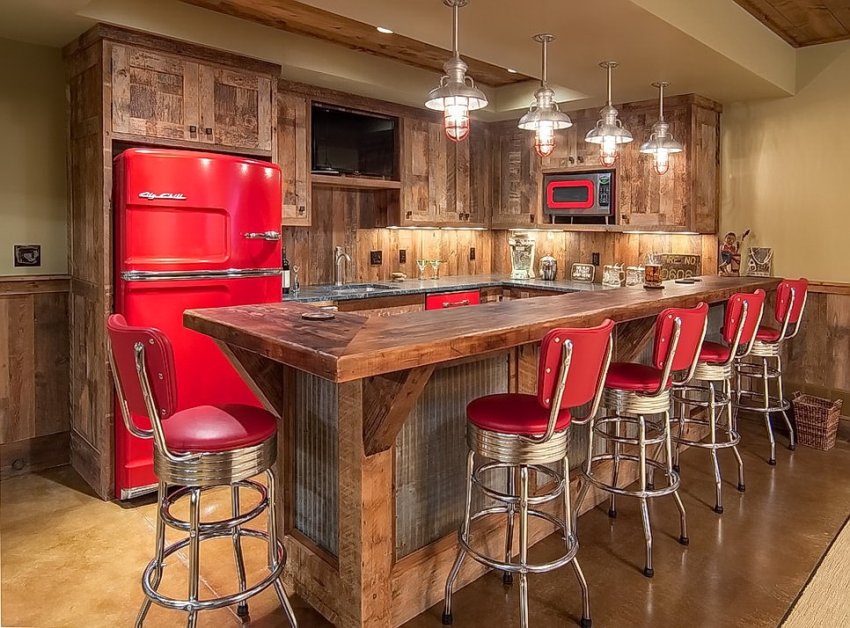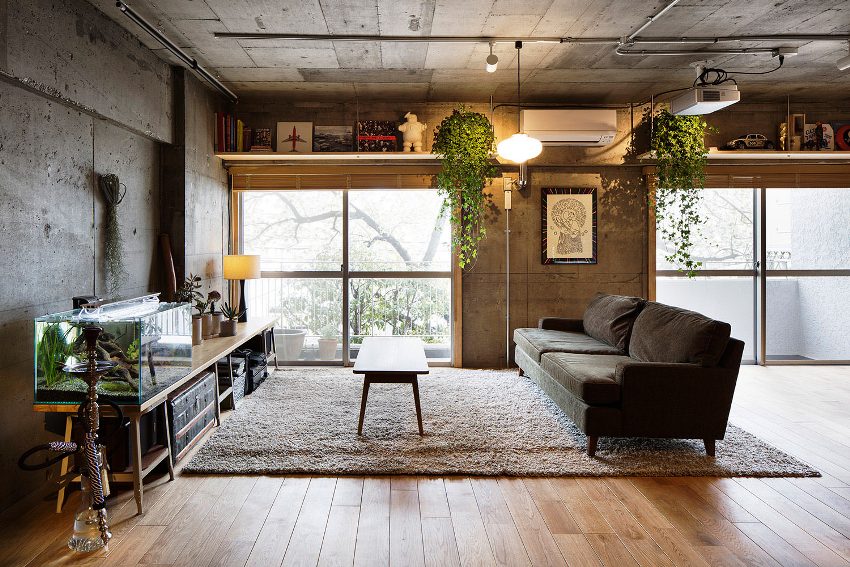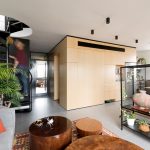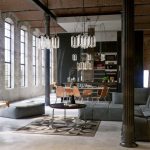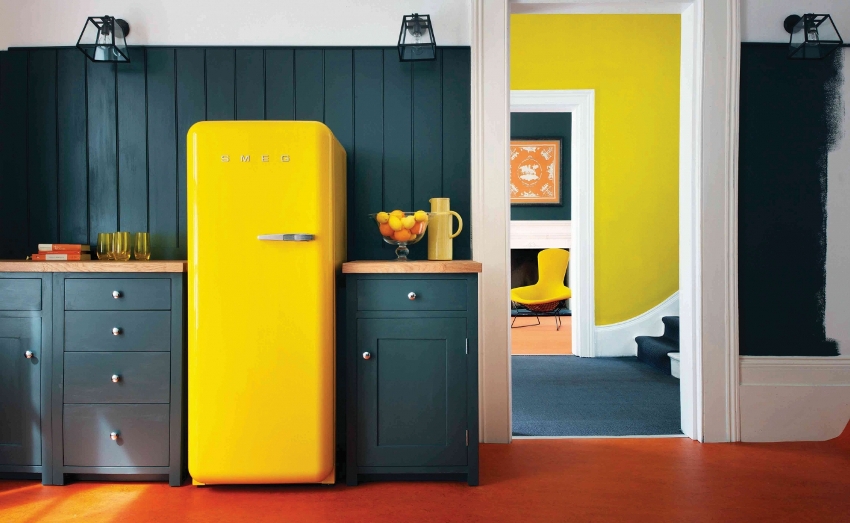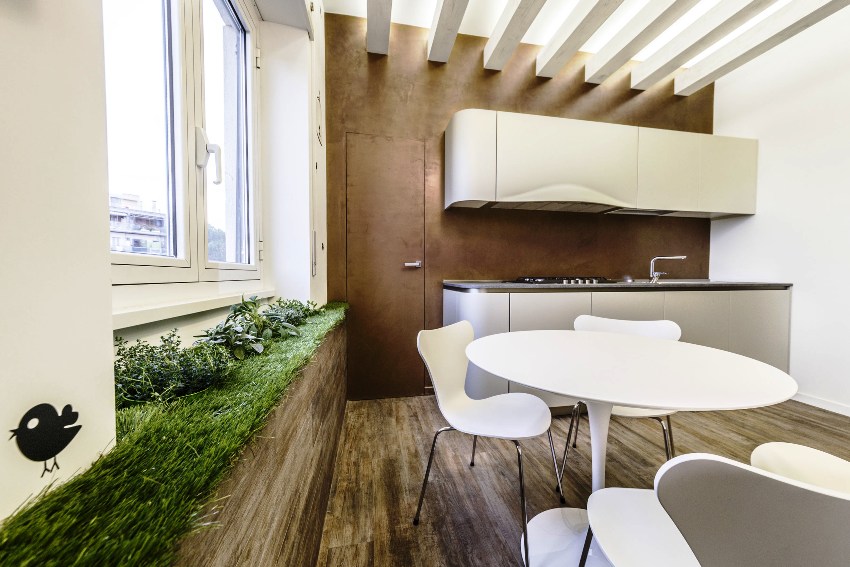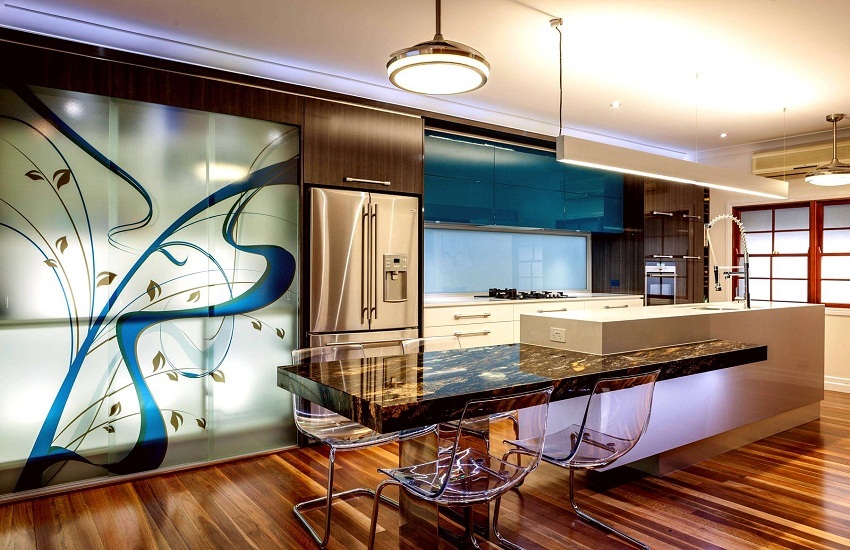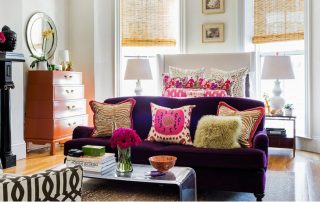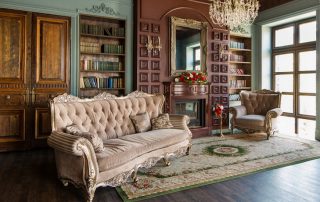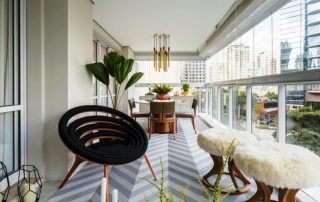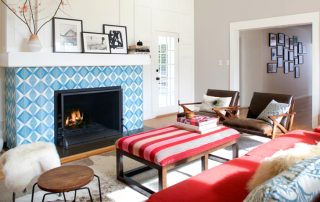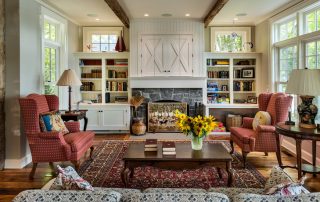The banal replacement of wallpaper and flooring in the rooms of apartments and houses has remained in the Soviet past. Now the approach to repair has become more serious. They glue on the walls and lay on the floor not what they got, but what corresponds to the design project. You can compose it yourself, but for this you need to know what directions and styles of interiors currently exist and how to make their combination harmonious. This article will help you understand these issues.
Content [Hide]
- 1 The important role of style and design in the interiors of modern apartments
- 2 What are the interior styles: division into groups
- 3 Historical, or classic, styles in the interior: photos with names
- 3.1 Impeccable antiquity, mystical Gothic and solid classicism in the interior
- 3.2 The majesty of the Empire style and the luxury of the Baroque in the interior
- 3.3 Rococo and Art Deco: Exquisite Interior Design Styles With Examples
- 3.4 Graceful Renaissance, harmonious Biedermeier and plastic Art Nouveau in modern interiors
- 4 Characteristics of ethnic styles of the interior with photos and descriptions
- 4.1 Bright Moroccan, romantic Italian and majestic Roman styles in the interior
- 4.2 Cozy scandi, elegant English, sophisticated French styles in the interior
- 4.3 Luxurious Arabic, philosophical Chinese styles in apartment interiors
- 4.4 Refined Japanese and harmonious American interior styles
- 4.5 Welcoming chalet, cheerful Provence and serene country style: decor and furnishings
- 5 Modern styles in the interior of country houses and apartments
- 5.1 Unauthorized kitsch and ergonomic contemporary style in the interior
- 5.2 Freedom-loving loft and bold avant-garde style in the interior
- 5.3 Practical minimalist design and unique fusion
- 5.4 Cheerful retro and mixed grunge style in the interior
- 5.5 Ultramodern interiors in eco, hi-tech and techno style
The important role of style and design in the interiors of modern apartments
The nature of the room and its perception by a person depend on many factors, but first of all on the correctly selected and created style of interior design. Repair and decoration of a home without a plan and rules have already become a thing of the past. Now aesthetic requirements are put forward in the first place, and not simple practicality in the arrangement of a home. Creating a cozy, reliable and at the same time beautiful and original appearance of a room is a whole science called interior design.
In the consumer market, there is now no shortage in the choice of materials for finishing work.In addition, a variety of finishing technologies have been developed, taking into account the latest discoveries in science and technology. In periodicals and on the Internet, you can find many photos of the interiors of rooms, decorated in accordance with all the rules of style. According to the options chosen, it is easy to purchase the necessary furniture and accessories - their range in the retail network is quite wide.
Very often, such an abundance disorients consumers - and even with the complete "packing" of an apartment with expensive finishes and furniture, the interior can look pretentious, tasteless or even ugly. It is very difficult and expensive to correct such errors, but they arise due to the fact that the owners neglect the rules of the design of the premises in accordance with a specific style. That is why it is necessary to start renovating an apartment or house not with the purchase of furniture and wallpaper, but with the creation of a project, relying on the rules for the design of a particular style in design.
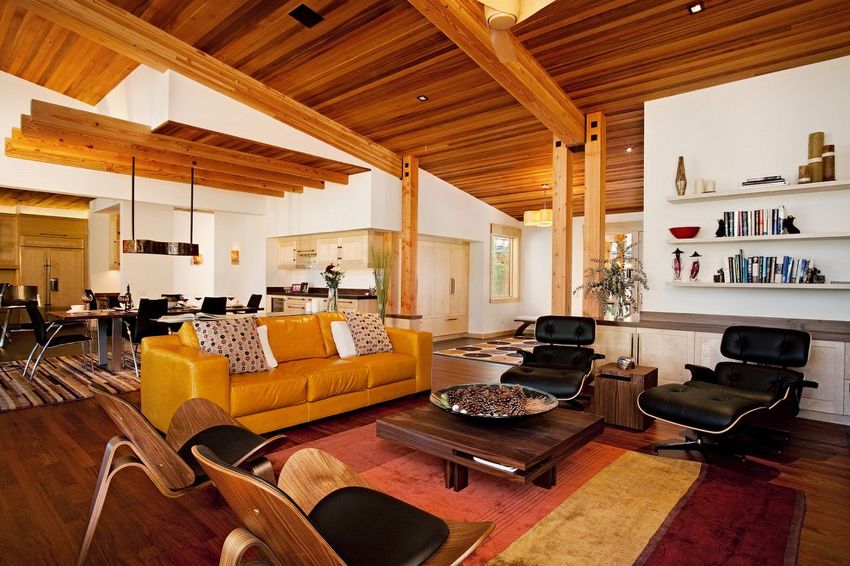
Style serves as a direction and a fulcrum from which you can build on when creating your own, unique interior
If a clear plan is drawn up, in accordance with it, stylish furniture and lamps are selected, then even a low-budget renovation can look beautiful and elegant, as they say, "tasteful."
Interior design styles and their characteristics
Styling a dwelling is not only the use of elements characteristic and specific to a particular style, but also the realization of the ideas and desires of the inhabitants of the house, which conveys precisely their character and creates the appropriate mood.
Helpful advice! If you have doubts about your own abilities regarding the creation of a design project and its implementation, then it is better to entrust this work to specialists - experienced designers and builders.
The general concept of renovation depends on the style of the apartment interior. In accordance with it, materials for the ceiling, wallpaper, flooring and other building materials, as well as decorative elements are purchased. Therefore, it is very important to decide on a specific type of style even in the process of planning the renovation and, already starting from the requirements for the stylistic direction, start decorating the interior.
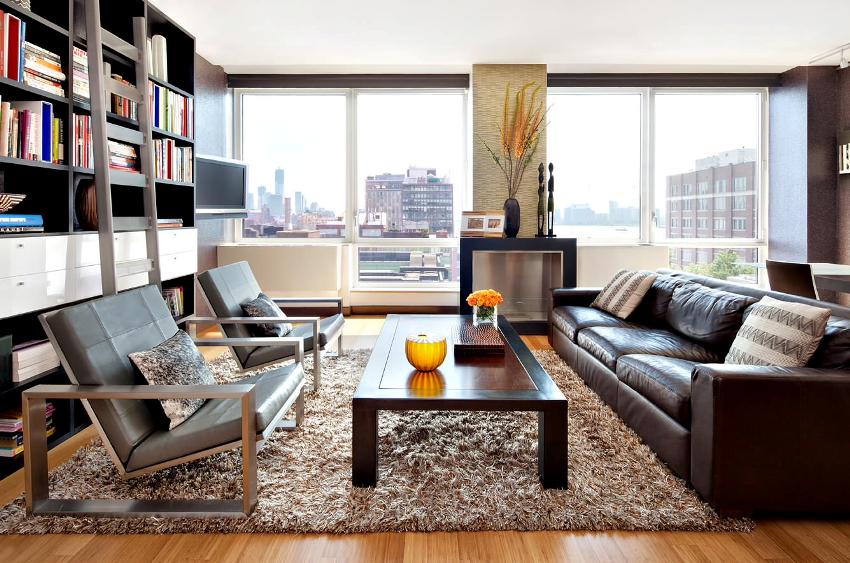
Having familiarized yourself with various styles of interior design, as well as their characteristic features, you can harmoniously combine different decor elements
The interior of a house or apartment, made in the same style, has the following distinctive features:
- harmony is felt in the atmosphere of the home;
- the design approach and the choice of the interior style underlies the concept of the entire renovation, which makes the process of choosing and purchasing materials simpler and more efficient and greatly simplifies the course of repair work;
- interior style is the embodiment of the thoughts, views of a particular person, therefore, having studied many existing directions, you can even create a harmonious interior design yourself, without using the help of specialists.
Style in the interior: rules and conditions for a good choice
If you decide to independently create an interior design project, then you should not rely entirely on your own strength and before choosing an interior style, in order to avoid mistakes and unnecessary waste, you should at least consult with a professional designer. Nevertheless, it is better to entrust the work to specialists, then investments in repairs will justify themselves in the form of a pleasant and cozy atmosphere of the apartment.
You should take into account the individual qualities and character traits of the inhabitants of the house when choosing the style of interior decoration.What one likes may not please others, although the style has its own patterns and a specific direction can unite people in taste and character. For example, what works for pragmatists will not suit romantics and creative people.
In the world of design, there are more than fifty styles of interiors and their varieties, which arose on the basis of closely related stylistic trends. You can create especially interesting interiors by mixing styles. This approach, which is called eclecticism, helps to enhance the features of each individual direction. For example, very often in modern styles you can find elements of the classics in the generally accepted methods of decoration or in the choice of finishing materials.
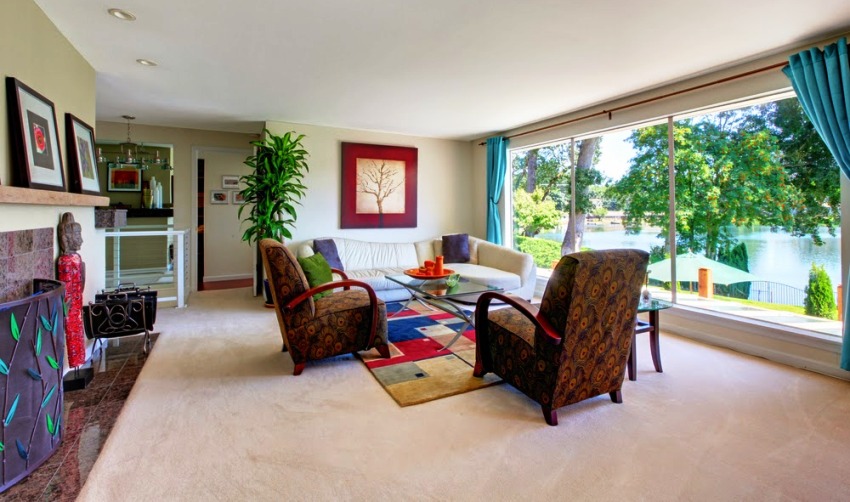
To make the repair work, you just need to choose the style of the interior, which is good and comfortable
Eclecticism is needed when it is necessary to take into account the desires of all family members who belong to different generations and have different taste preferences. It is due to the combination of different directions and the connection, it would seem, incongruous, most often new styles are born.
Helpful advice! To choose a specific stylistic direction, you need to get acquainted with the features of different styles, or at least the most popular of them.
What are the interior styles: division into groups
The classification of styles is based on the main similar characteristics that unite them. Designers conditionally divide them into three groups:
- classic styles in interior design;
Related article:
Home design inside: inspiring examples of unrivaled interiors
The principles of creating modern interiors. Popular finishes.
- ethnic group of styles;
- modern style.
To have an idea of each of the groups, you need to familiarize yourself with their brief characteristics.
Classical (or historical) styles are associated with a specific period of history and have absorbed the features of architecture and art of a particular era. The group includes the following styles:
- antique;
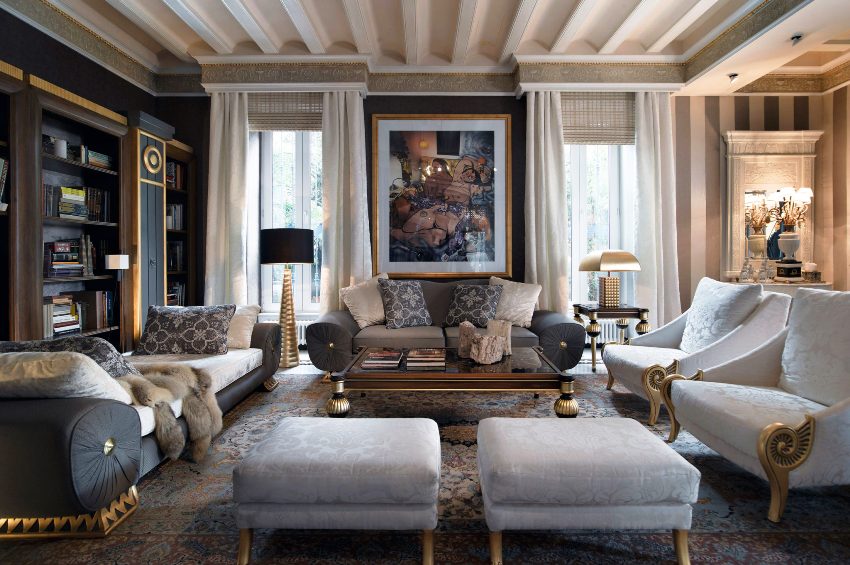
The classic style in the interior is an aristocratic style that has put restrained elegance at the head
- Gothic;
- Renaissance;
- classicism;
- baroque;
- Biedermeier;
- rococo;
- empire style;
- Art Deco;
- modern.
The implementation of these areas requires significant financial costs. Such interiors are preferred by conservative personalities who do not like to experiment, but choose proven solutions.
Ethnic styles. These unusual interiors have absorbed the traditions and design features of the housing of a particular nation or a separate territory. The style names come from the country name:
- Moroccan;
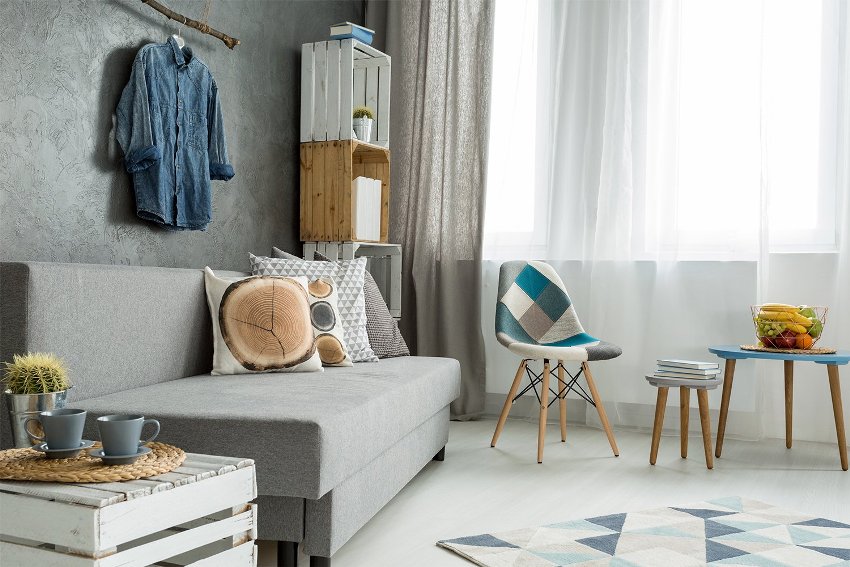
The advantages of ethnic interiors - the ability to create a full-fledged ethno atmosphere in a small city apartment
- Arab;
- Japanese;
- Chinese;
- Roman;
- Greek;
- Scandinavian;
- French;
- English;
- provence;
- chalet;
- country;
- American.
Ethnic style is inherent in a specific territory and is not often found in a foreign country. It can be chosen by fans of a particular culture, but it is quite difficult to implement it, since it is difficult to find materials.
Modern interior styles have arisen relatively recently, literally over the past century, some are still continuing their formation, these include:
- contemporary;
- avant-garde;
- grunge;
- minimalism;
- retro;
- neoclassicism;
- high tech;
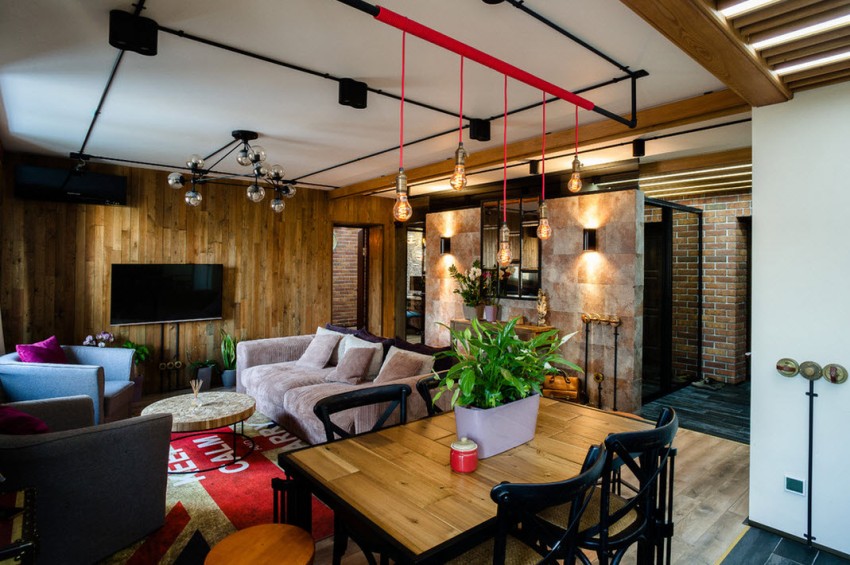
Residents of the megalopolis who value technical progress and do not like to burden themselves with many trinkets prefer modern styles in the interior
- loft;
- boho;
- kitsch;
- fusion;
- bungalow;
- pop Art;
- techno;
- shabby chic;
- eco-style.
The listed styles are considered the most common, as they are designed for different preferences, tastes and family budgets.
Mixing styles in the interior: photos with names and descriptions
Understanding the question of what styles are in the interior, one should not only consider the three groups listed, but also dwell on such a category as mixed directions. Many designers are of the opinion that they should be classified as a separate group. Mixing implies the implementation of the features of several (most often two) styles in one specific territory. This approach to design meets special modern styles such as kitsch, fusion, eclecticism.
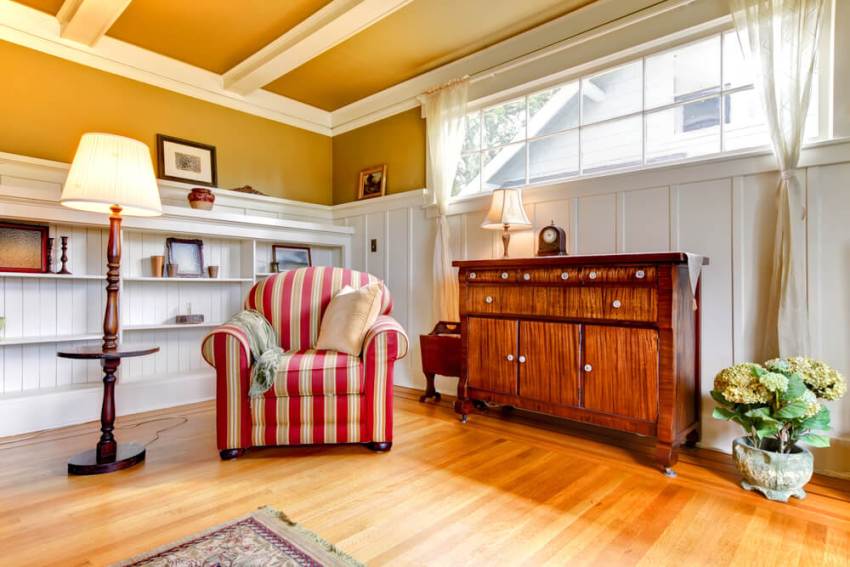
The walls, floors and ceilings of the apartment can be made in one style, and the furniture in another
There are also trends that have arisen as a result of the mixing of cultures that do not belong to a particular type of style in the interior. Colonial style belongs to this category. It is not in vain that it received a separate place in the list of directions in housing design, since it simultaneously absorbed ethnic and classical outlines, while retaining special characteristic features.
Helpful advice! You can get an unusual apartment design with a touch of colonial style by decorating the interior in natural colors, where green and brown colors are predominant. An abundance of green plants in pots in the form of ferns, palms and ficuses is permissible here.
This trend came to modern design from medieval England. It was at that time that the colonization of Africa took place. The colonialists, having arrived on the mainland, did not want to live in huts, so they began to equip the interior in their own way, making it more civilized. At the same time, the local flavor found its reflection in the design of housing.
Unusual colonial style is often chosen by modern designers. It manifests itself in the use of rattan, rubber or tulip wood wicker furniture, as well as plant fiber carpets, wooden figurines and chests. Skins, stuffed animals and horns of wild animals can be used as decoration.
Historical, or classic, styles in the interior: photos with names
Historical styles are at the origin of interior stylistics. The main characteristics of each of the directions depend on the fashion and characteristics of the development of culture in a particular era. At the same time, they are all united by common principles, in particular:
- the use of strictly natural materials;
- bulky high quality furniture;
- elite decor items, for the manufacture of which precious and non-ferrous metals were used, in the form of exquisite picture frames, candlesticks, etc.;
- spacious rooms with high ceilings;
- high quality textiles from natural raw materials;
- artsy finishing materials;
- stucco in the decoration of walls and ceilings.
Classic apartment interiors are a reflection of a particular era. Here it is necessary to try hard for the designer and decently spend money on the owners of the home. Decorating in classical styles requires a careful study of the traditions of the period that is recreated in the interior. These are styles for people who respect traditions and do not accept experiments. Small decor items are not used here, since the furniture and textiles themselves are already generously decorated with decorative elements.
Impeccable antiquity, mystical Gothic and solid classicism in the interior
Brief characteristics and photos of classic interiors will help to form an idea of each of the directions. The ancient style is considered the most ancient.Its creation in a house or apartment is the construction of a real temple filled with beauty and harmony. This trend originated several millennia BC in the homeland of the Greek gods - in Greece. It is designed to help people as much as possible to feel like the inhabitants of Olympus. The style is characterized by the presence of columns, exquisite stucco and plasterwork. The furniture is elegant, generously strewn with expensive decorative elements. The main features of the style:
- harmony;
- majesty;
- calmness.
Helpful advice! The main attributes of the antique style are columns and thematic plaster moldings. Without them, the creation of an ancient Greek interior is simply impossible.
The Gothic style looks very different from other directions. It is considered one of the most recognizable trends due to the elongated features of the structural elements that are reflected in windows, doors and high ceilings. To create it, stained-glass windows, a variety of lighting effects, complex curly vaults, openwork elements and inflated furniture are used. Houses in this style imitate Catholic churches and medieval castles. This direction is characterized by:
- irrationality;
- airiness and lightness;
- expressiveness.
The brightest representative of the group is rightly considered classicism. The interior represents the golden mean between content and form. Everything here is based on calculations, every detail is in its place, everything superfluous is excluded. The result is the perfect combination of great decor and functionality. The interior in the style of classicism is the embodiment of such concepts:
- grace;
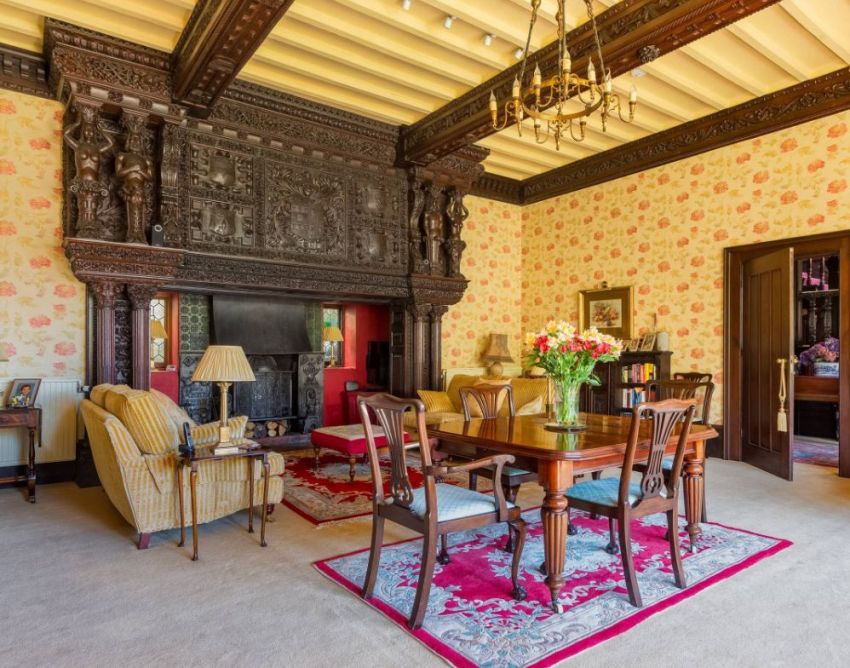
Gothic design is always complemented by a large number of wood carvings, as well as complementing the interior with ceramics and glass products
- nobility;
- functionality.
The majesty of the Empire style and the luxury of the Baroque in the interior
The Empire style gives the room a certain power, giving the interior the features of the imperial chambers. It originated in the palaces of the rulers of European countries, which is why it impresses with its monumentality and aristocracy. This majestic style has the following features:
- triumphality;
- solemnity;
- splendor.
The luxurious baroque is also called the palace style, which implies not only the decoration of the premises, but also the way of life. He, like the Empire style, emphasizes majesty and abundance. For homeowners, he will create a reputation as a true connoisseur of art. Baroque patterns are distinguished by their complexity and intricacy, and the decor is expensive and splendid in form. The complex of qualities made this style the leader among the "luxury" directions. A home in true Baroque style is a harmony of beauty and taste. Baroque in the interior is distinguished by the following features:
- pomp;
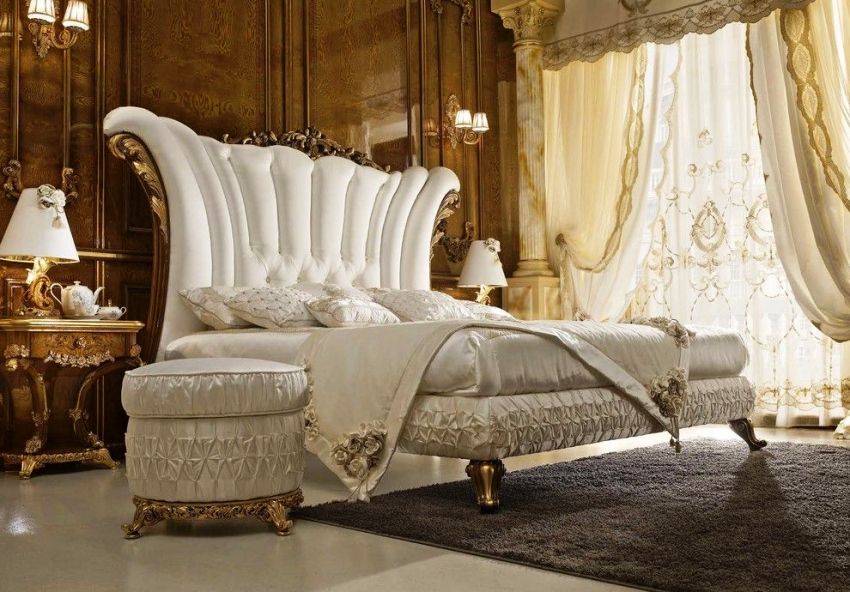
The Baroque interior is an impressive royal interior design, the luxury of which must be manifested in every detail
- monumentality;
- majesty.
Rococo and Art Deco: Exquisite Interior Design Styles With Examples
The Rococo style is characterized by sophistication and sophistication, which are manifested in a variety of ornaments, mythological details and decor. Symmetry in the interior elements is maximally emphasized here, pastel colors are used, which ultimately creates a comfortable environment. The Rococo interior resembles festive decorations, so it does not lose its attractiveness. It is characterized by:
- grace;
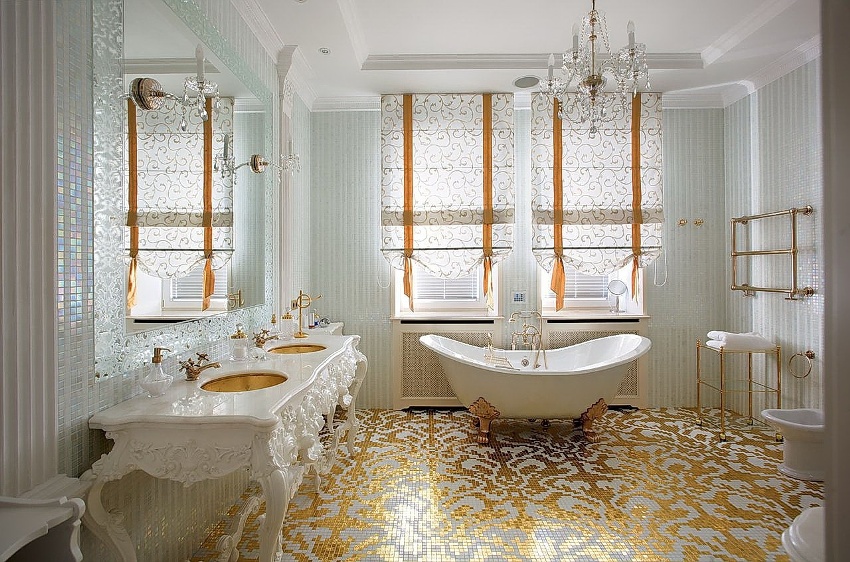
The main task of the Rococo style is to reveal all the sophistication and richness of the room with the help of gilding on furniture, expensive textiles and wood species
- decorativeness;
- ease.
Fans of bold ideas and exoticism should pay attention to the unusual and spectacular art deco style.Here, curved shapes are combined with bold colors, the incompatible is mixed, asceticism and minimalism are denied. This is a kind of mixture of Egyptian culture, Empire style, African traditions and Indian exoticism. This style is recommended for extraordinary and outstanding personalities, as it has the following qualities:
- showiness;
- waywardness;
- impeccability.
Helpful advice! Wall drapery plays a special role in interior decoration, for which expensive fabrics or special art deco-style wallpaper on a fabric basis are often used, imitating a natural canvas.
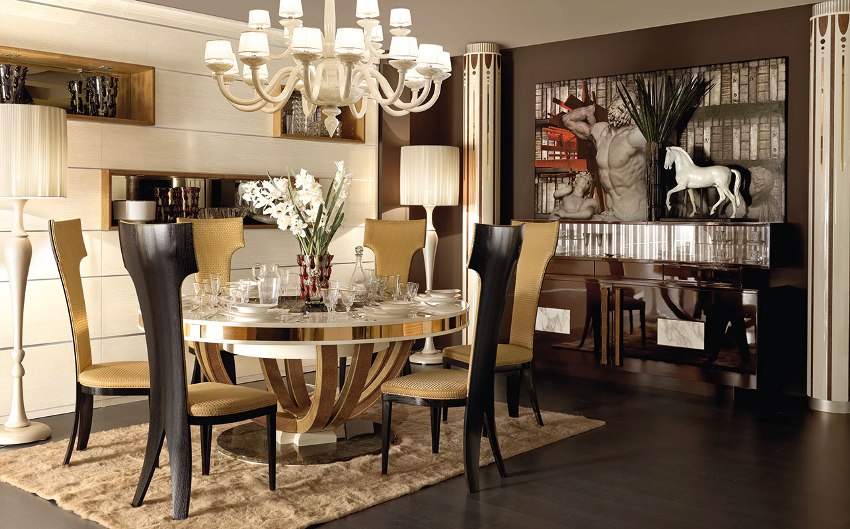
The art deco style is characterized by a combination of strict clear lines with plant and ethnic motives, simplicity with luxury, exotic with primitiveness
Graceful Renaissance, harmonious Biedermeier and plastic Art Nouveau in modern interiors
The Renaissance Renaissance, which replaced the medieval Gothic, became one of the brightest periods of the formation of European culture. He skillfully absorbed the features of antiquity and monumentality. Pilasters, pylons and columns again come to the fore, saturated with the spirit of humanism, where the beauty of the human soul and body is exalted. Therefore, the style implies the presence of graceful portraits and figurines in the decor. Vases, wreaths, arabesques, furniture with graceful shapes and upholstery made of velvet, satin and leather are also appropriate, emphasizing the style features:
- humanism;
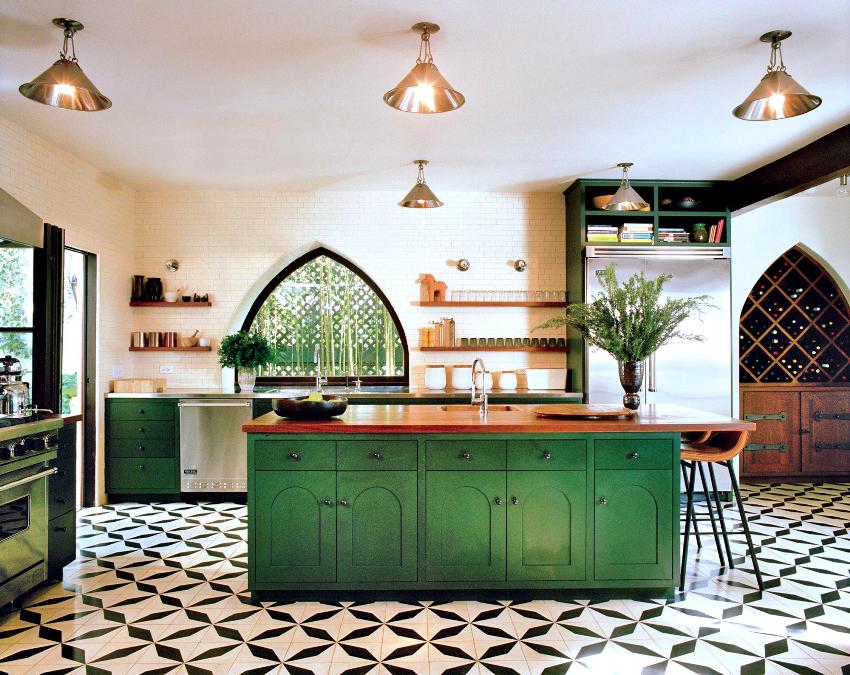
When creating a Renaissance style, the main task of the designer is to convey an atmosphere of warmth, comfort and aristocracy
- grace;
- relief.
Houses in the Biedermeier style are distinguished by intimacy, simplicity of form. The direction is characterized by balanced proportions, light colors are preferred, free space is welcome, excesses in architecture and decor are excluded. This style of apartment renovation is used to create the most comfortable environment. This direction is suitable for those who love relaxation and tranquility, it is inherent in:
- bright hues;
- comfort;
- functionality.
Simple Art Nouveau interiors harmoniously combine utility and art, they are characterized by asymmetry, functionality, almost complete absence of angles and straight lines. Forms are flexible, modern technologies are welcome. Thus, the first place is put forward:
- plastic;
- ease;

Art Nouveau style in the interior involves the transition from straight, verified lines to natural, smooth and curved shapes.
- simplicity.
Characteristics of ethnic styles of the interior with photos and descriptions
Each nationality is distinguished by its culture, traditions, language or dialect, which makes it unique. The originality of any country is a fertile ground for the formation of completely different directions in the creation of interior design. Thus, ethno-styles in the interior are based on a certain specifics of decoration, characteristic of a certain territory.
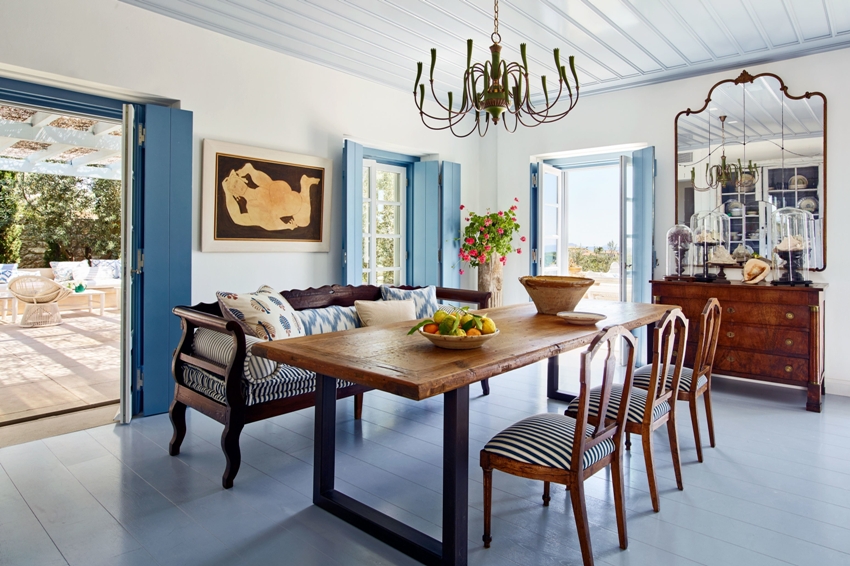
Ethnic style in the interior reflects the flavor of a particular country, its way of life and traditions
Accordingly, the name of the style comes from the name of the country or region, for example: Japanese, French, American or Provence, chalet. In the modern world, ethnic design in its pure form is difficult to meet, since the materials, furniture and decorative elements used now differ significantly from those used in the historical homeland of a particular style several centuries ago.
It is difficult to accurately reproduce the ethnic style in historical terms, since the culture, architecture and traditions of different peoples constantly mixed and borrowed certain features from each other. For example, the Moorish style significantly influenced the Scandinavian direction in style.
Despite the fact that it is rather difficult to display exactly ethnic interiors, in their approximate version they look very original and expressive.Small details take a special place in decorating premises in ethnic styles. More details about the styles in the ethnic group are described below.
Helpful advice! For maximum reconstruction of the interior in folk traditions, it is necessary to get acquainted with the art and architectural features of a particular country. Then the room will look natural and believable.
Bright Moroccan, romantic Italian and majestic Roman styles in the interior
Moroccan style is a synthesis of bright Moorish ornaments, nomadic traditions, oriental harmony, furniture and materials from Europe. Nobody gets bored in such an interior. Depending on the chosen accents, it can be both intimate and festive, cheerful and mysterious, enigmatic or open. This is a style for those who like an interesting life. The direction is characterized by the following concepts:
- mysteriousness;
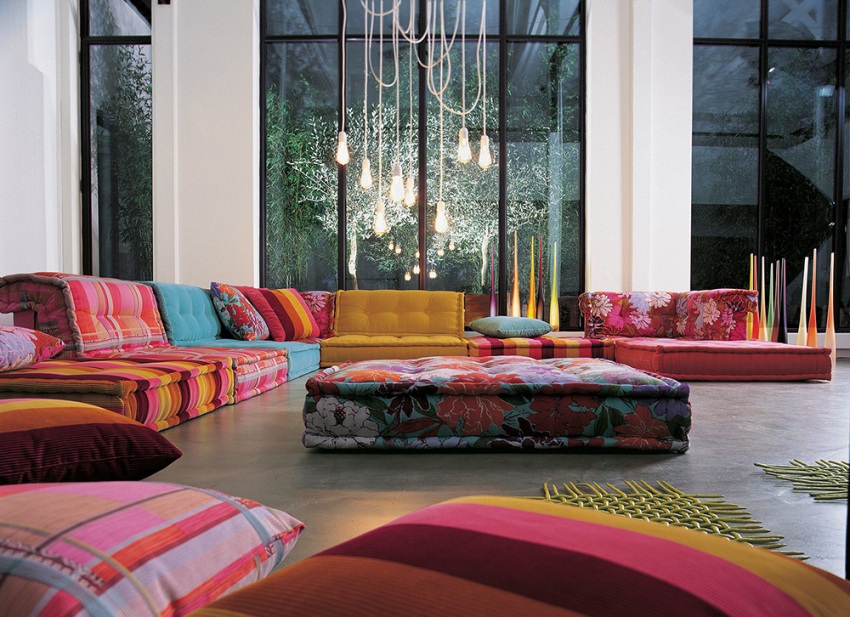
Ethnic accents in the interior allow you to fill your home with comfort at the lowest cost at your own request
- brightness;
- unpredictability.
Italy, with its rich history and architecture, attracts tourists and romantics, and also inspires admiration for stylists. All the beauty of the sunny coast and wealth are reflected in the Italian style, which is characterized by an abundance of light, light colors in the setting and decor. Every detail and piece of furniture is a continuation of each other. As a result, the following features of a stylistic portrait emerge:
- romanticism;
- sunshine;
- heat.
The birthplace of the Roman style, like the Italian one, is the Apennine Peninsula. However, they differ significantly from each other. Roman is devoid of romance, but at the same time it is endowed with grandeur. In such an interior, there must be a central detail in the room. Style assumes symmetry in the arrangement of furnishings. Another feature is the multi-level ceiling, on which well-hidden electric lights create the illusion of sunlight. Thus, the style is characterized by:
- greatness;
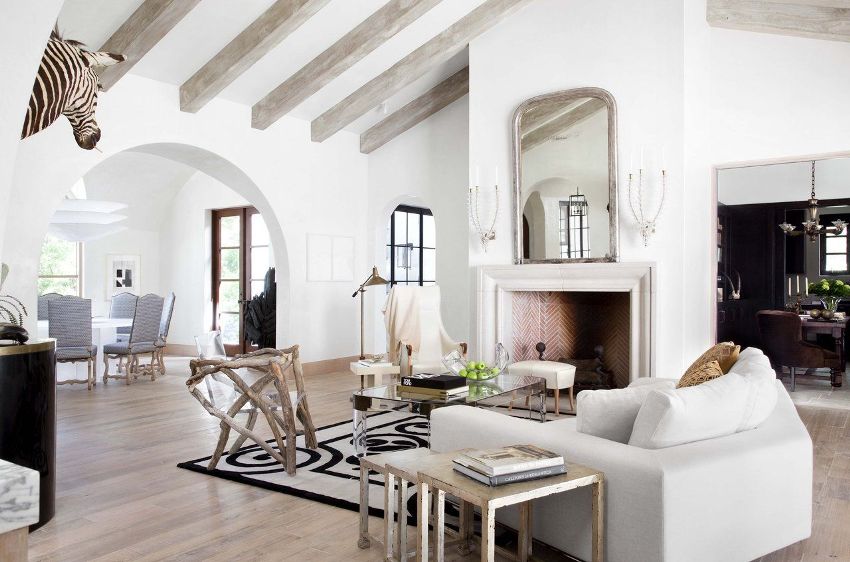
The Italian style originated in the Mediterranean countries, incorporating the entire palette of culture and life of the indigenous people
- emphasis;
- symmetry.
Cozy scandi, elegant English, sophisticated French styles in the interior
The French interior in its classic design is a room made in pastel colors, with an elegant decor in the form of paintings, mirrors, vases and lamps, imitating candlesticks in shape. It is characterized by smooth lines, rich stucco molding and vintage. The pastel palette of an apartment in this style can include beige, white, pink, blue and yellow shades with decorations in metallic and gilded colors. The furnishings are graceful and items such as dressing tables or dressing tables are welcome. Properties that are clearly visible in the visual perception of the French interior:
- softness;
- sophistication;
- vintage.
The Scandinavian style (or Scandi) originated in the countries of the peninsula of the same name and absorbed the cultures of the Finns, Norwegians, Danes and Swedes. It is distinguished by an abundance of light provided by large windows, often without curtains or curtains, as well as thoughtful artificial lighting. White is the leader in color design here, which eliminates the lack of light in the homes of northerners. Photos of the Scandinavian-style hallway interior clearly demonstrate its main features:
- functionality;
- comfort;
- simplicity.
Helpful advice! To decorate a room in the Scandi style, you need to use simple shapes, clear lines, natural materials in decoration and furniture, and you should also take care of the availability of free space.
The adherence of the British to traditions was reflected in the style of housing. Therefore, the interior contains objects made of natural wood and elegant accessories. Typical English interiors are bookcases with open shelves, fireplaces, armchairs and sofas in the middle of the room, as it is not customary in England to put furniture against the walls to free up space. Finishes and furnishings are warm and subdued. The following typical style features can be noted:
- stiffness;
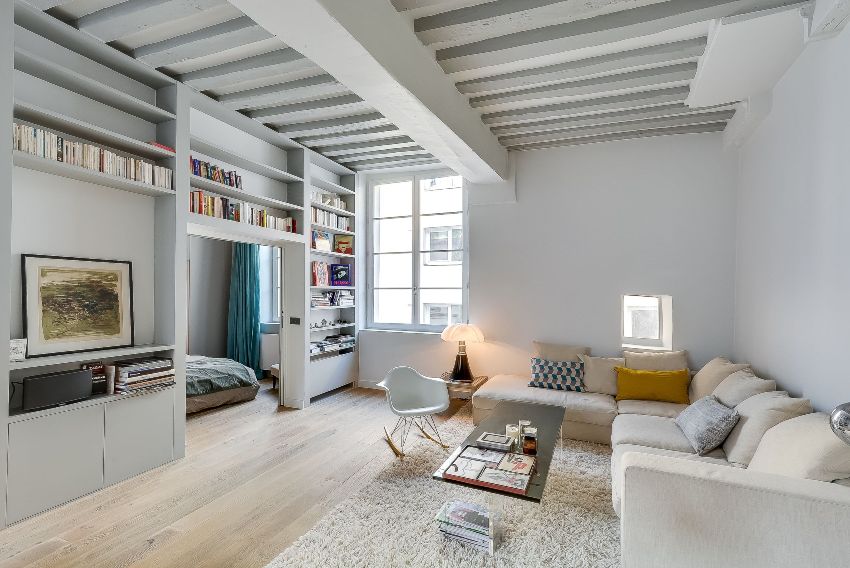
The interior in the Scandinavian style conveys the character of the northern peoples, who, for all their coldness and severity, value home comfort
- closeness;
- elegance.
Luxurious Arabic, philosophical Chinese styles in apartment interiors
Several countries of the sunny and vibrant East gave birth to a whole family of oriental styles. Among them, Arabic occupies a special place, which primarily implies luxury and wealth, manifested in an abundance of decor and gilding, carpets and carved wood. The main elements of the interior are arches with rounded shapes, bright lights made of multicolored glass. It is dominated by gold and red shades, yellow and pastel colors are allowed. A variety of patterns should be present on the walls and on the floor. The style is characterized by:
- luxury;
- abundance;
- brightness.
Home improvement in Chinese style is based on the philosophy of Feng Shui, which implies the rational organization of space in accordance with energy flows. This setting has an expressive and at the same time pacifying look. There are no sharp corners and sharp lines, natural materials are used.
Furniture has complex shapes; among the decor there can be elements of forging, items made of dark wood, silk and porcelain. Live plants and feng shui talismans are welcome. As for the colors, there must be a contrast, a combination of white with black or red, pure green, blue or yellow colors are also appropriate. Smooth geometric and floral lines should prevail in the drawings. Chinese style is:
- philosophy;
- serenity;
- expressiveness.
Refined Japanese and harmonious American interior styles
The Japanese direction also belongs to the oriental styles, but at the same time is the complete opposite of the Arab interior. The Japanese are more practical and pragmatic, strive for harmony and welcome functionality, which is reflected in the interior design. In the home of the Japanese there are only the most necessary pieces of furniture and a large amount of equipment. The interiors are monochrome with a clear predominance of light shades of wood and textiles.
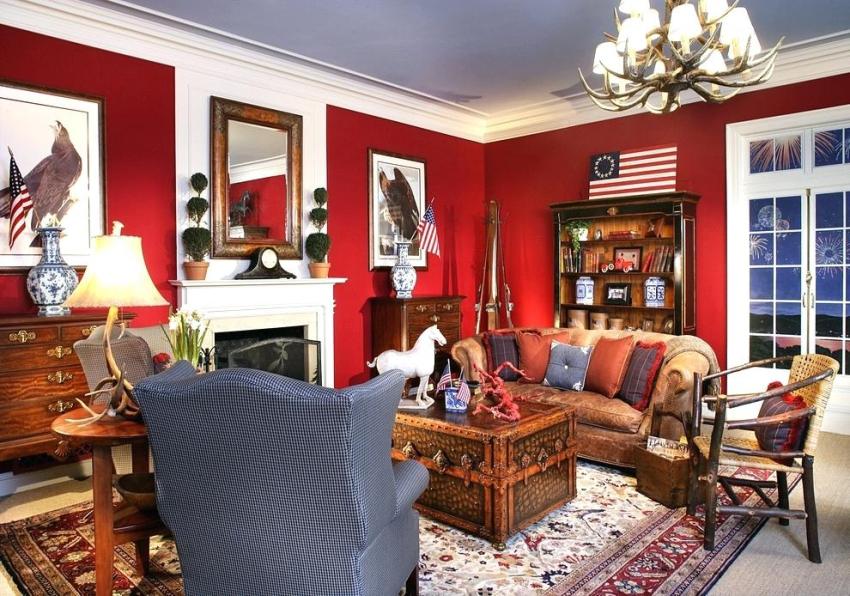
American style in the interior is an elegant combination of traditional values and modern trends in design
This people stands for the rational use of resources and compactness, therefore, the use of natural materials and the placement of a minimum number of decor items and furnishings are encouraged. Style personifies:
- functionality;
- practicality;
- minimalism.
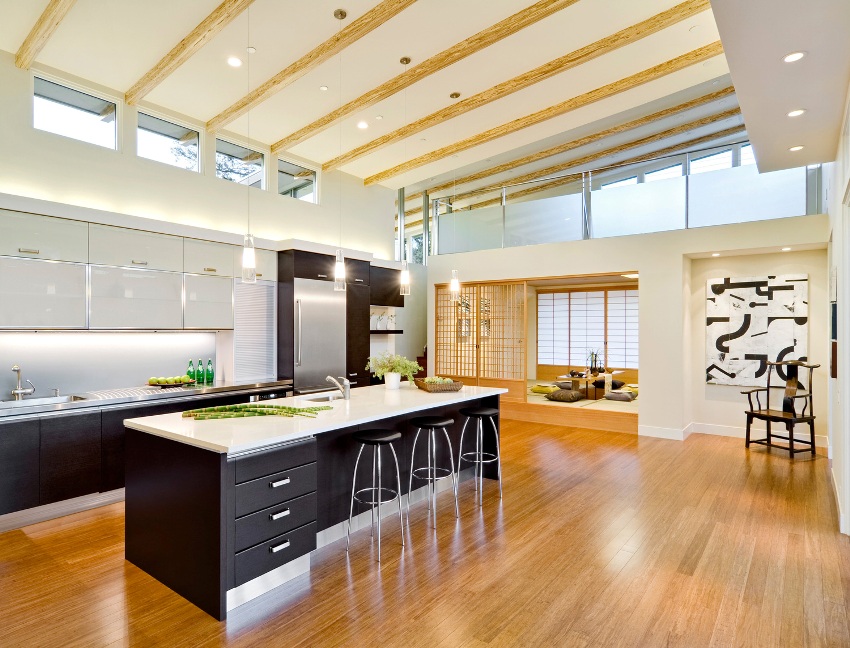
Japanese-style interior design is characterized by simple, austere forms, restraint, a sense of peace, nobility and grace
Interesting to know! In Japanese houses, sliding doors and partitions are most often used. This feature is due to the high price of real estate, which affected the need to save space.
The American style was influenced by two cultures - Eastern and Western, which were brought to the mainland.The direction has absorbed the best features of other styles, taking practicality as a priority, as well as the traditions of the Wild West in the form of animalistic attributes.
In the American interior, modernity and nature have harmoniously merged; the preference is given to finishing from natural materials. The same applies to colors. Terracotta, ocher and gilding are popular. It is allowed to use beige, red and orange shades in the decor and accessories. Furniture should be practical. Low chairs and beds are typical furnishings in American apartments. The style itself is an isolation:
- harmony;
- practicality;
- naturalness.
A welcoming chalet, cheerful Provence and a serene country style: decor and furnishings
The chalet style that descended from the Alps remains relevant to this day. True, the modern dwelling differs significantly from the temporary shelter of the shepherds. It is in this direction that houses are designed in ski resorts. The style is ideal for lovers of nature and harmony to create the interior of a country cottage. The chalet uses natural materials: stone and wood - in construction and furniture, cotton, linen and wool - as textile elements. The integral attributes of the style are animal skins and ceiling beams, which together combine:
- hospitality;
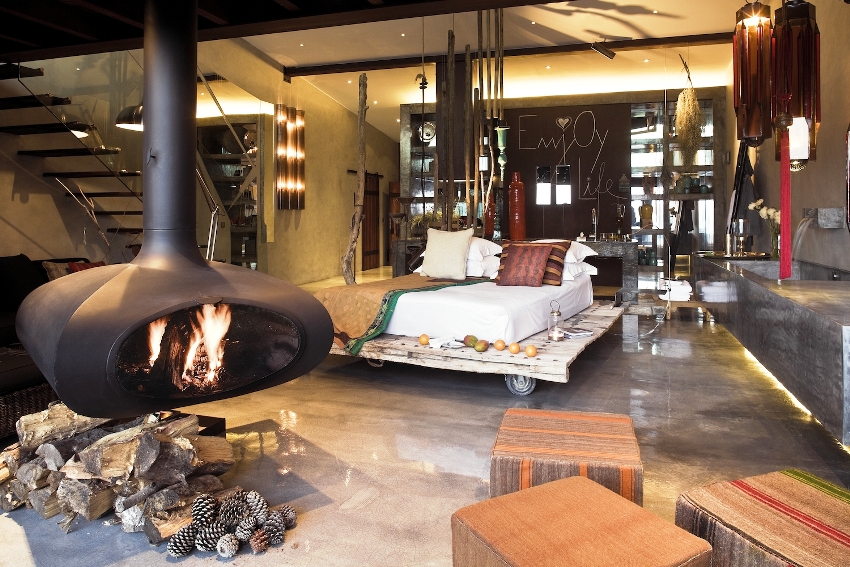
Among the variety of different trends in decor, the chalet style in the interior is especially original.
- appeasement;
- a sense of idyll.
Important! In the chalet, the presence of a hearth is mandatory, therefore, in a country house, you need to take care of arranging a natural fireplace with wood during repairs. The style in the apartment will help create faux decor that looks great under the TV.
The interior of an apartment in country style is a mix of correct forms, natural materials with a natural texture. It is dominated by pastel colors in decoration, cage and ruffles in textiles. Functionality and lightness are highlighted. The style will appeal to lovers of rural coziness, tranquility and comfort, as it is characterized by:
- serenity;
- texture;
- comfort.
Provence surprisingly combines the rural simplicity of classic country music with French romance. This style is the perfect solution for those who know how to enjoy life. It is characterized by the use of natural materials, but the furnishings are not made of rough wood, but more sophisticated ones - from vines or rattan. Style is inherent:
- cheerfulness;
- brevity;
- refinement.
Modern styles in the interior country houses and apartments
The list of modern trends in the design of houses is quite wide, despite the fact that they have been formed over the last century. Their main distinguishing features are originality in decorations and non-standard approaches to creating interiors. Here, bold experiments with decoration, decor items and colors are possible.
Modern house interiors should be as functional as possible, but at the same time quite attractive and original. The needs, special preferences of the owners of the house and the possibilities of the family budget are also taken into account. A characteristic feature of modern stylistics is the quirkiness of design, which often combines elements of classical and ethnic style groups.
Thus, modern styles are appropriate both in a country house and in a city apartment. They are open to experimentation and do not exclude rational mixing of other stylistic directions.The main thing is that modern interior design helps to provide the most practical and functional space with a focus on the needs of the inhabitants of the house.
Modern styles are suitable for those who strive to live in the present, keep their finger on the pulse and follow the progressive trends. We will describe in more detail the most popular trends in housing design in the 21st century below.
Unauthorized kitsch and ergonomic contemporary style in the interior
Literally from English, the term "contemporary" is translated as "modern". This style, which emerged in the 60s of the last century, is the embodiment of comfort and coziness. It is based on the Scandinavian direction. Furniture and household items should be as comfortable, ergonomic and accessible as possible. The main accent of the contemporary interior is original decorative elements. Such apartments are distinguished by simple layouts and integrity in interior design.
Useful advice! In the contemporary style, studio apartments are most often equipped, dividing the room into functional zones using a variety of design techniques in the form of glass partitions, furniture, screens, multi-level floors and ceilings, which can significantly save space. For the same purpose, built-in and modular ergonomic furniture is used.
Artificial materials are widely used for decoration, such as laminate, glass, metal, wallpaper, plastic and artificial stone. There are no requirements for the choice of colors. Characteristic features of the contemporary interior:
- modernity;
- elegance;
- availability.
The kitsch style is distinguished by its waywardness, as it arose contrary to all the rules and traditions in stylistics. Typical projects and generally accepted postulates are unacceptable here. It allows you to experiment and implement the most daring ideas in the interior. Express style portrait:
- rebellion;
- extravagance;
- eclecticism.
Freedom-loving loft and bold avant-garde style in the interior
The loft style arose in the 30s of the last century, when industrial workshops began to be actively used for housing. Now, the design in the style of housing for workers has become one of the most expensive trends in interior design. Most often, the loft is chosen by creative individuals, as it captivates with airiness and the spirit of freedom. Typical elements of the style are brick or concrete walls without plaster, overhanging pipes and wires. All this should be competently and neatly framed, which in the end personifies:
- spaciousness;
- progressiveness;
- love of freedom.
Among youth styles, the avant-garde occupies a special place, which actually opened a new trend in art. It was a kind of revolution in style, allowing expressive ideas to be embodied. The word itself, translated from French, means the advanced ideas of society. The interior of the avant-garde is completely unpredictable, starting with an unusual combination of shapes and colors that should be bright. There is no concept of compatible or incompatible shades: walls can be painted in any contrasting tones, but the basis is always one light color, most often white.
Functionality is one of the main features of style. In the interior of the avant-garde, the presence of a semantic center is mandatory, which is the main accent. In the bedroom it is a bed and in the dining room it is a table. The space should not be limited, it is zoned with the help of light, colors or furniture. Walls and partitions are not welcome here, but modern finishing materials, progressive technologies are desirable, maximum light is preferred.This applies to furniture and decor items. The result is a symbiosis of such concepts:
- modernity;
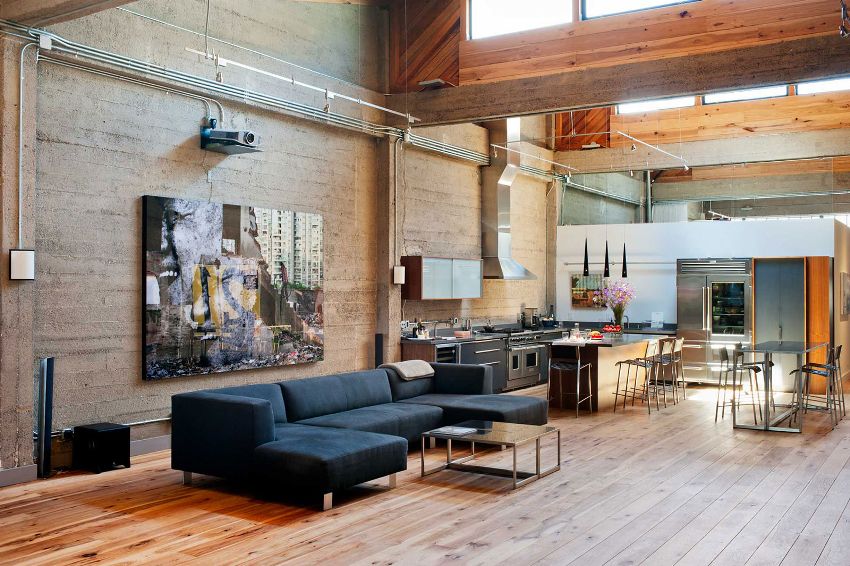
A prerequisite for maintaining the loft style is the presence of open ventilation systems, pipes, bricks, etc.
- nontriviality;
- expressiveness.
Practical minimalist design and unique fusion
The task of minimalism is to organize the living space in such a way that the interior is functional, laconic and at the same time beautiful. Both artificial and natural materials in the form of geometric shapes are used in the design.
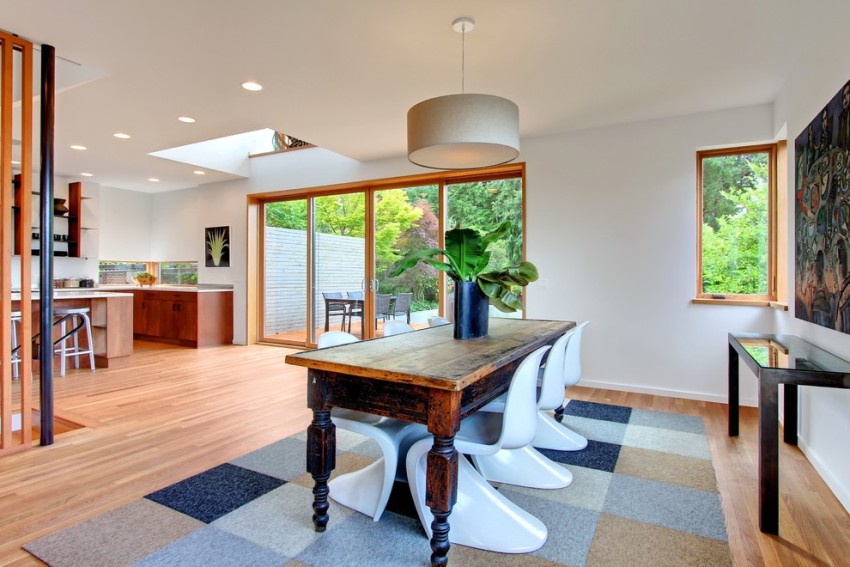
Despite the fact that fusion involves the interweaving of several styles, they must be combined and create a complete picture.
Useful advice! To create a minimalist hallway, you must use a minimum of furniture and decor items in order to maximize the release of space. It was this design of the corridors that was most popular in Soviet-era apartments.
Zoning is also used here, most often with the help of lighting. An abundance of natural light in a minimalist style is essential. The decoration is dominated by light colors, in particular white, but there are also black or gray accents. Simple geometric shapes are guessed in furniture and furnishings. This style differs from other directions:
- aesthetics;
- elegance;
- practicality.
Fusion is a unique direction, the author's creation of designer Antonio Buggi, which arose in the 80s of the last century in the Philippines. Here, elements that are completely different at first glance merge, which allows you to show individuality and creativity. The combined directions should ultimately create a whole picture.
It is necessary for harmony to manifest itself in all design elements - from color to shapes and lines of furniture. It is based on juicy colors that must be combined with each other. The presence of ornaments with animals in African style is a must. The line between stylish and tasteless is very thin here. The main thing is not to cross it. The style is characterized by:
- uniqueness;
- versatility;
- creativity.
Cheerful retro and mixed grunge style in the interior
The grunge is a simplified copy of the styles of the historical group using modern materials and special antique pieces. The interior is suitable for lovers of classicism who do not have the necessary resources and space to make their dreams come true.
The grunge interior is a classic, but without gilding, marble, plaster moldings and fanciful solid wood furniture. To recreate the semi-antique style, it is enough to paste over the room with dark wallpaper, lay a cream-colored board on the floor and hang vintage curtains with candelabra. Of the furnishings, cabinets made of light wood, decorated with glass, as well as a sofa with velvet upholstery and pillows are suitable. A couple of elegant accessories would be appropriate.
The grunge style welcomes aged objects in the form of dull fittings, consoles, rounded sofas with curly legs. Furniture can be made from inexpensive types of wood, and it is better to choose natural fabrics as upholstery and other textile elements.
Retro style originated in the days of hippies and dudes, among young people who were trying to find their place in society. Then they preferred colorful clothes and cheerful, bright notes in creating the design of the room. Retro interior decoration is a chance to return to those days and recreate the spirit of joy and carefreeness in the house, because this style corresponds to such concepts as:
- fun;
- brightness;
- carelessness.
Useful advice! Creating retro in an apartment is practically a reproduction of the interior of the 60-70s of the last century. Here, special attention should be paid to color design, the choice of stylish furniture and accessories. Old technique can be a great decor.
Ultramodern interiors in eco, hi-tech and techno style
Ecostyle is, first of all, freshness and striving for everything natural without harming nature. People began to create a piece of the natural environment in the middle of the metropolis. This can be done using natural and environmentally friendly materials. The concept of simplicity comes first. Characteristic features of the style:
- environmental friendliness;
- brevity;
- freshness.
The child of progress - hi-tech style - has absorbed the latest technologies that are designed to improve everyday life. This is manifested in home appliances, transformable furniture and practical materials. Style is one step ahead of reality. It is relatively expensive to build and at the same time quite simple. For example, a high-tech living room is a spacious room with painted monochromatic walls, dark cabinet furniture of strict shapes and monochromatic soft furnishings in the middle of a monochrome-metal palette. The style is characterized by the following features:
- progressiveness;
- futuristic;
- functionality.
Techno style is saturation with geometric lines, stone wall decoration, a large number of metal, plastic and glass objects. This is the destination for ultra-modern fantasy fans. Such an interior resembles the atmosphere on a spaceship, where household appliances are presented as accessories. The style is characterized by:
- minimalism;
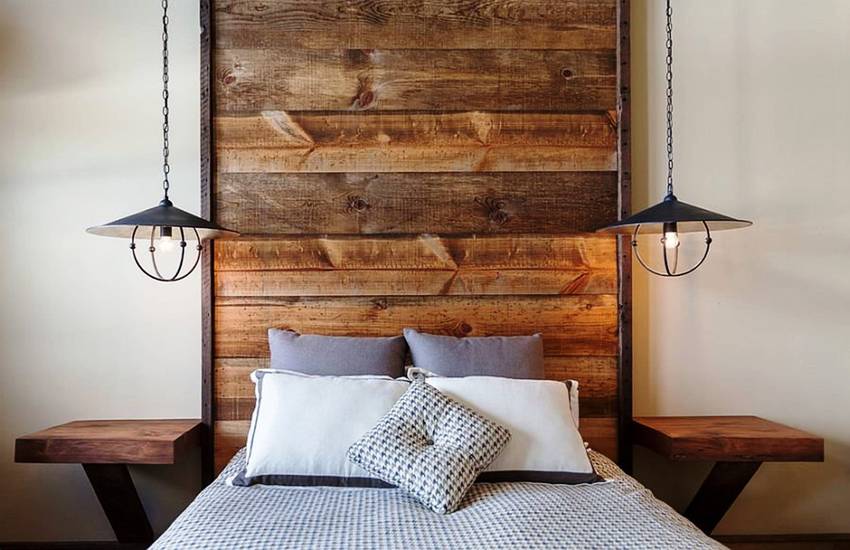
The emergence of eco-style is directly related to the need for residents of large cities to get rid of stress and stress
- manufacturability;
- intimacy.
All interior styles have a certain circle of their fans, and therefore have an undeniable right to exist. At the same time, each of them has both a number of advantages and some weaknesses. Therefore, it is necessary with special responsibility to approach the choice of style for decorating your home, which should correspond to the preferences and characters of its inhabitants. The atmosphere will depend on how successfully the housing is equipped, affecting comfort, coziness and family harmony.
